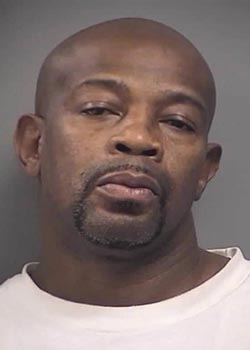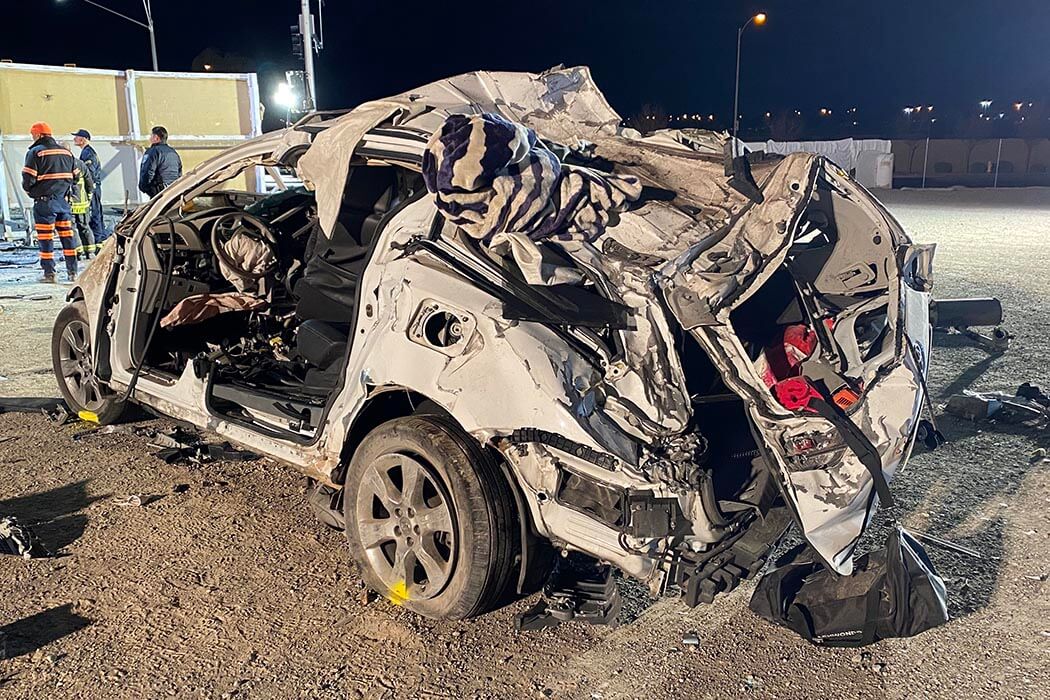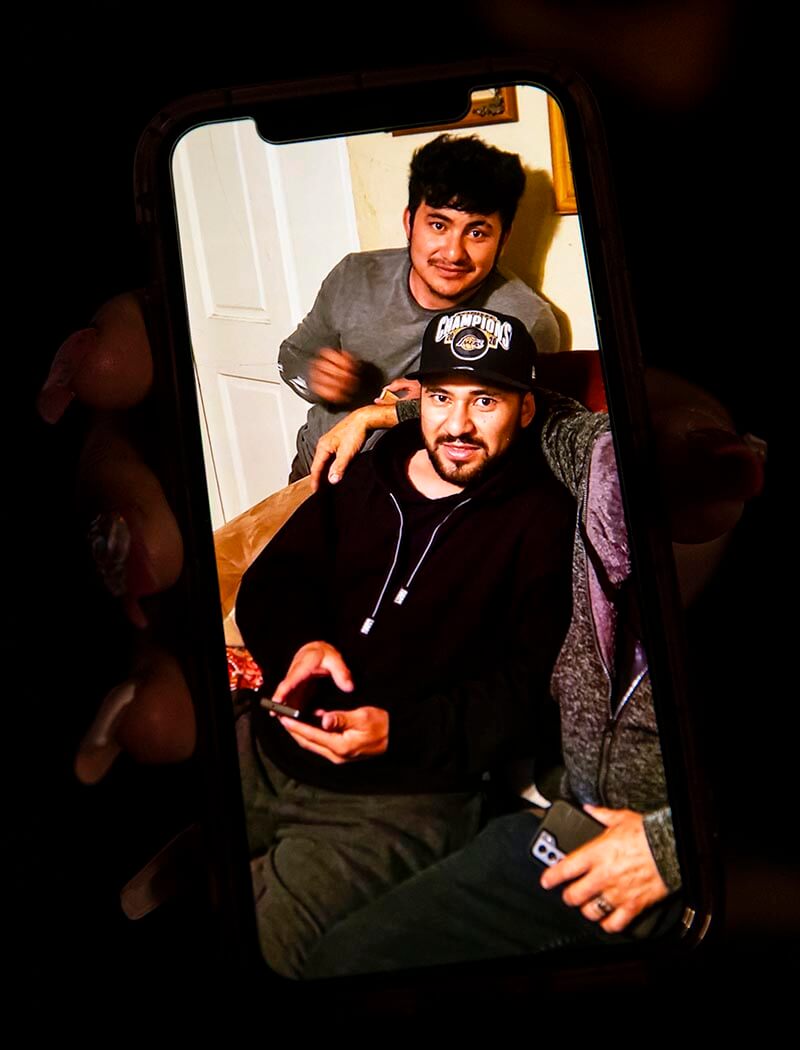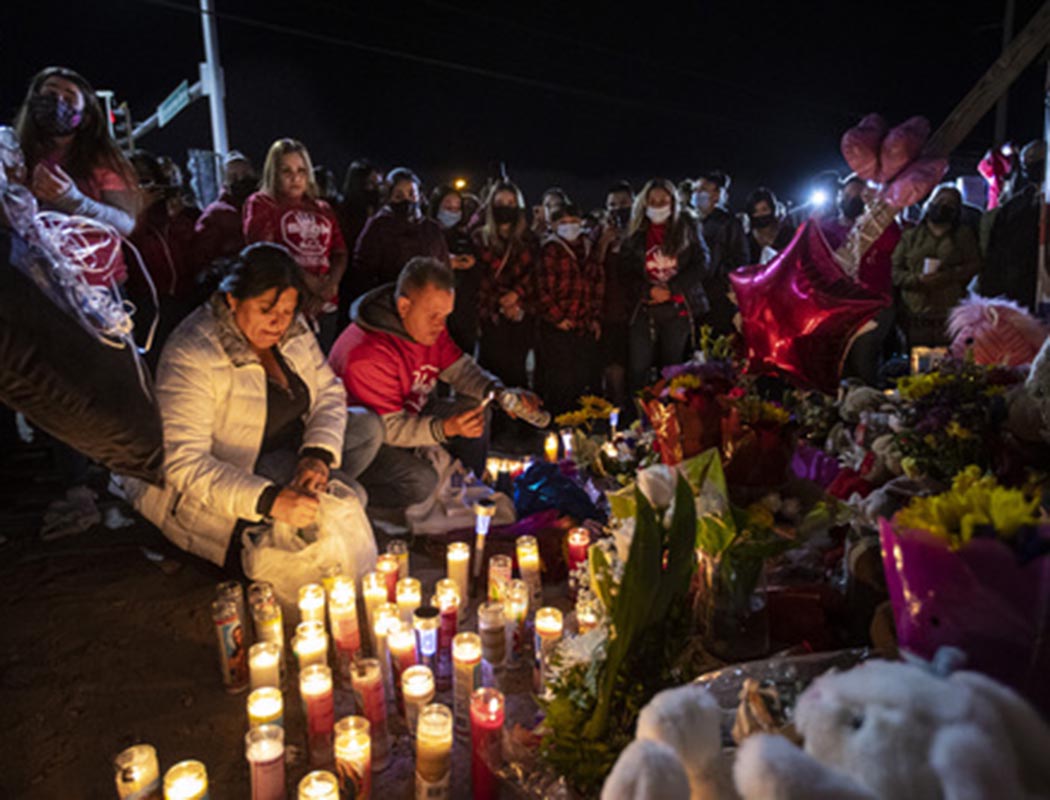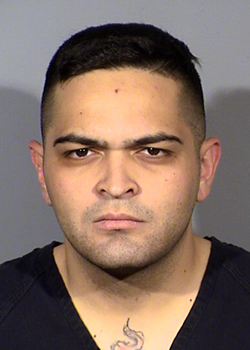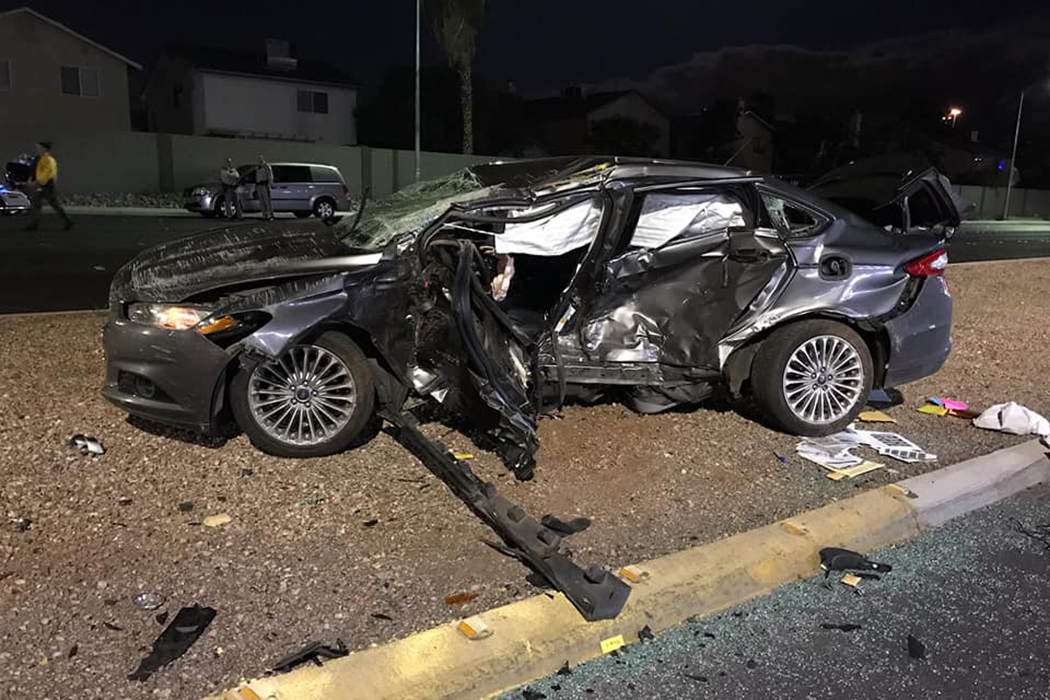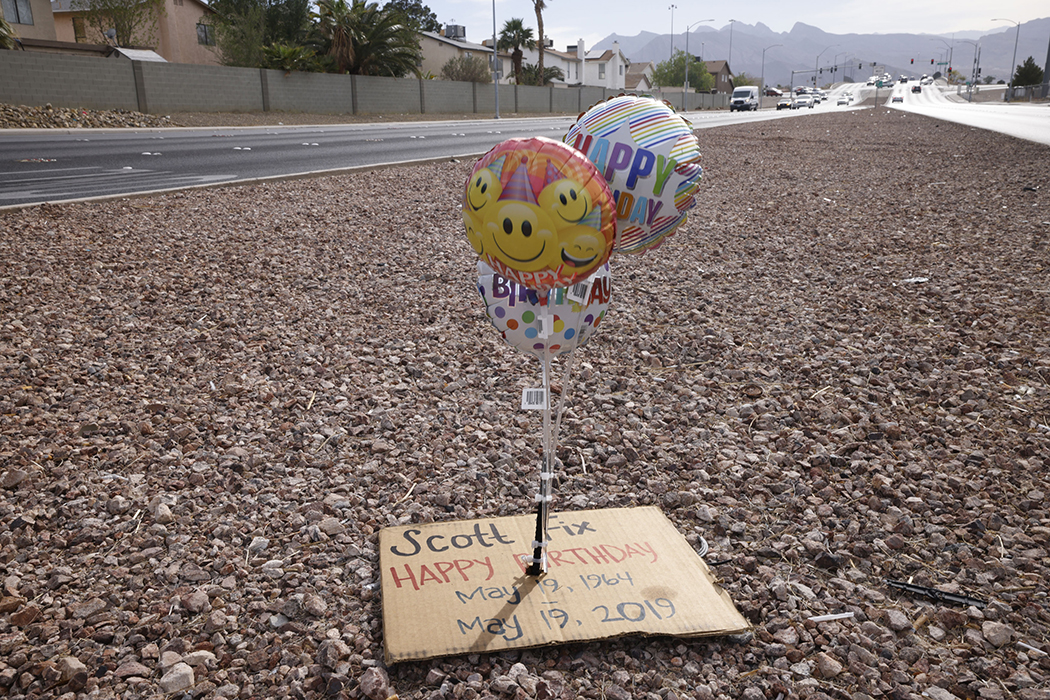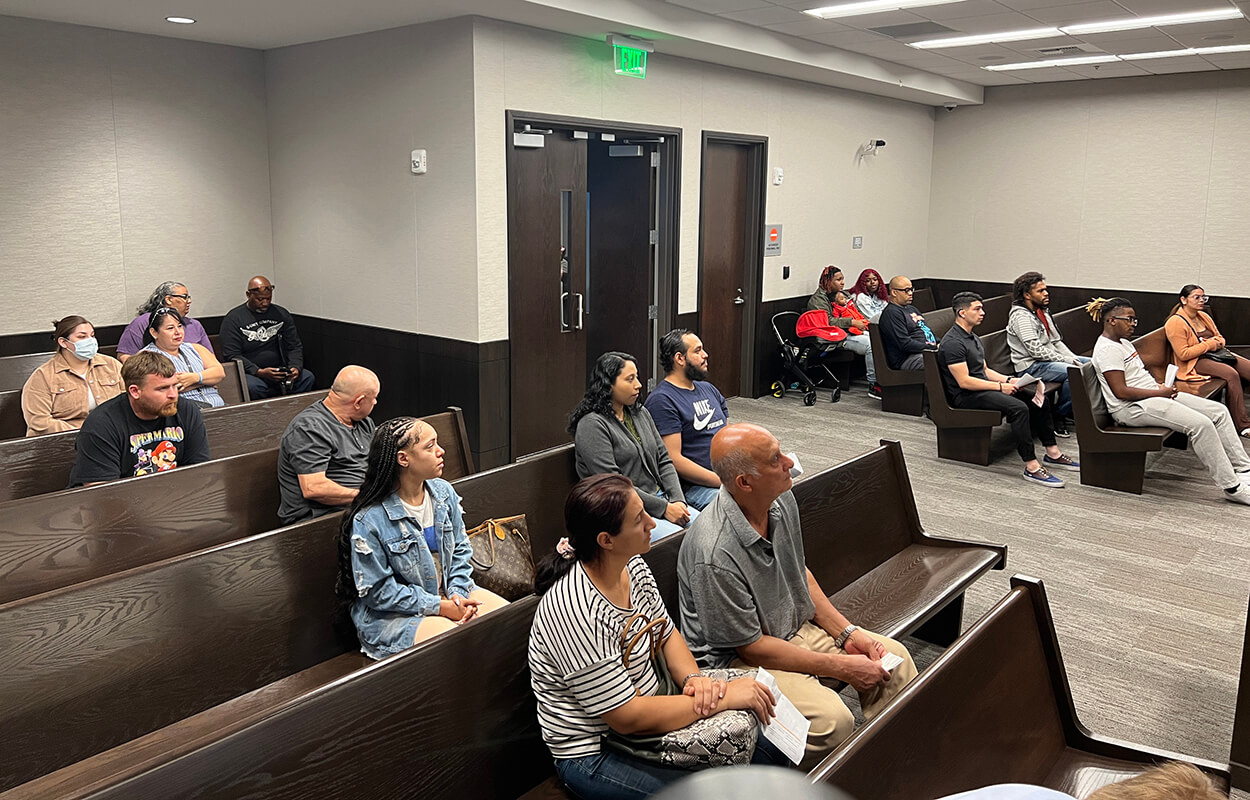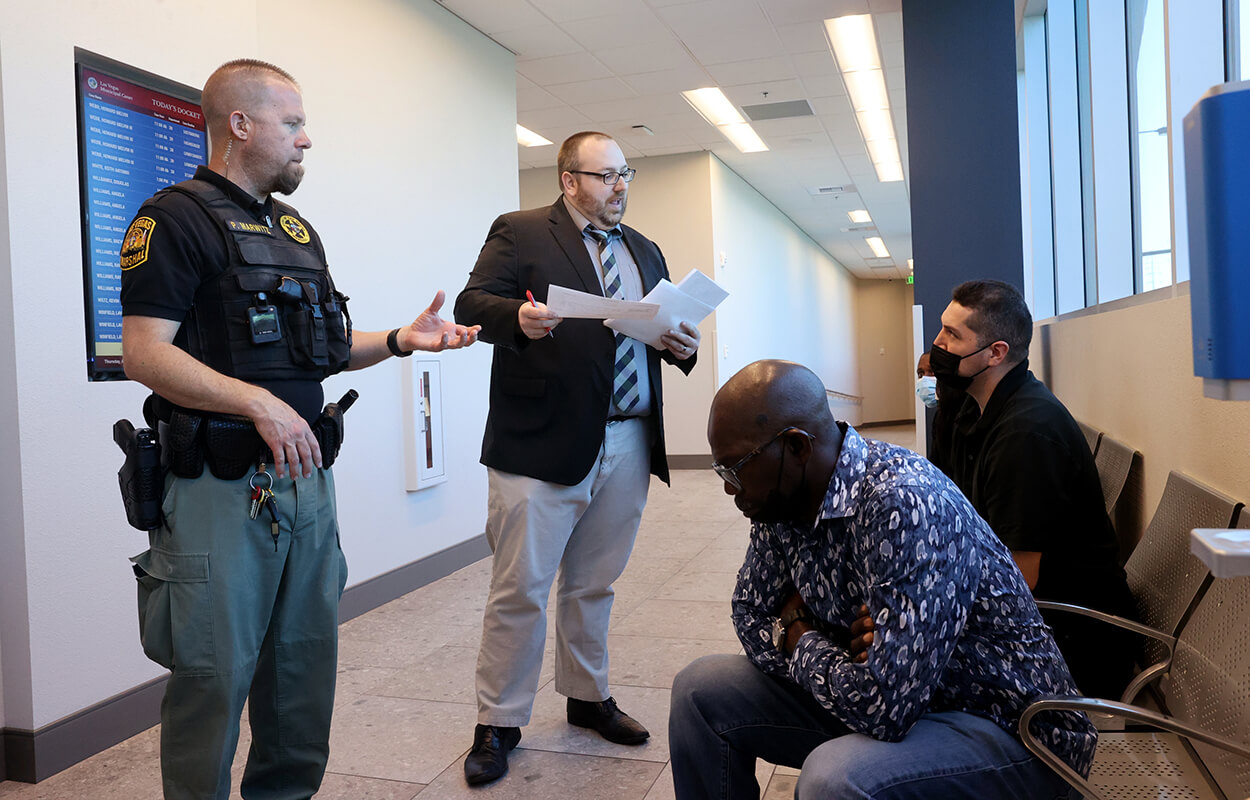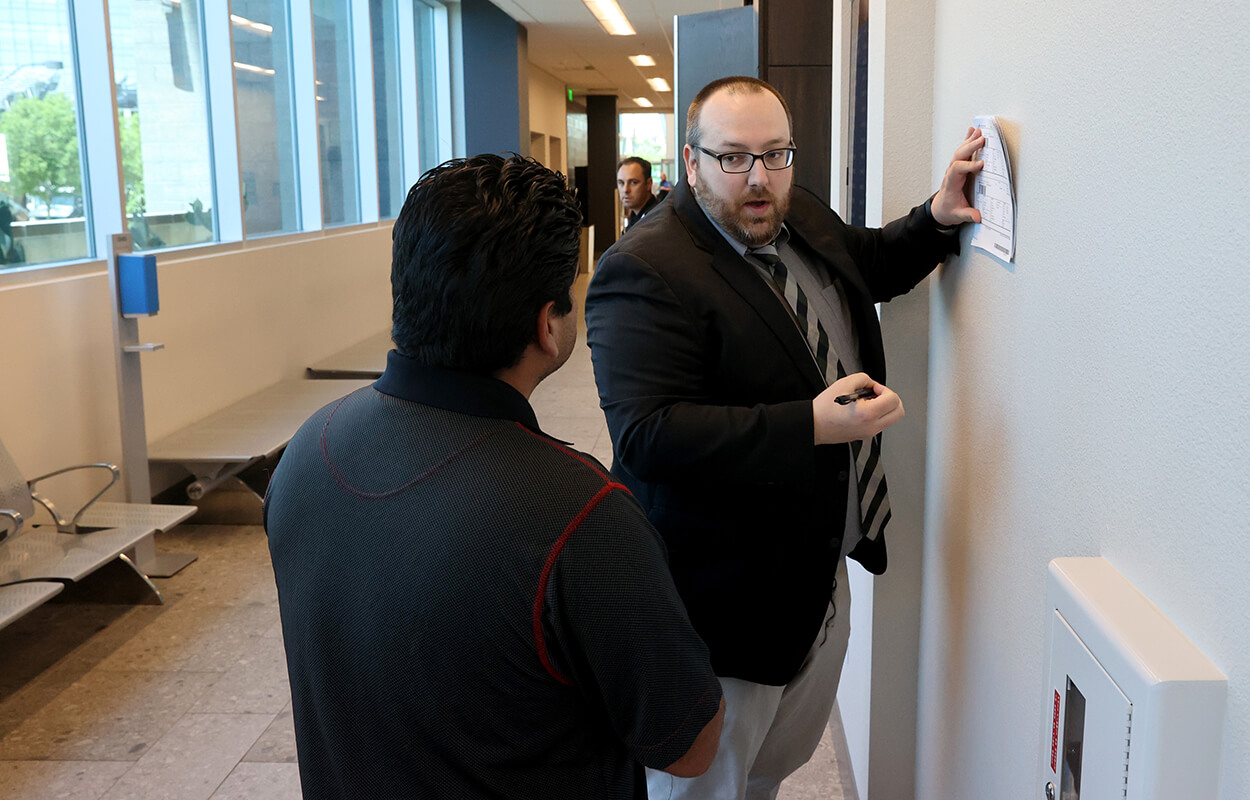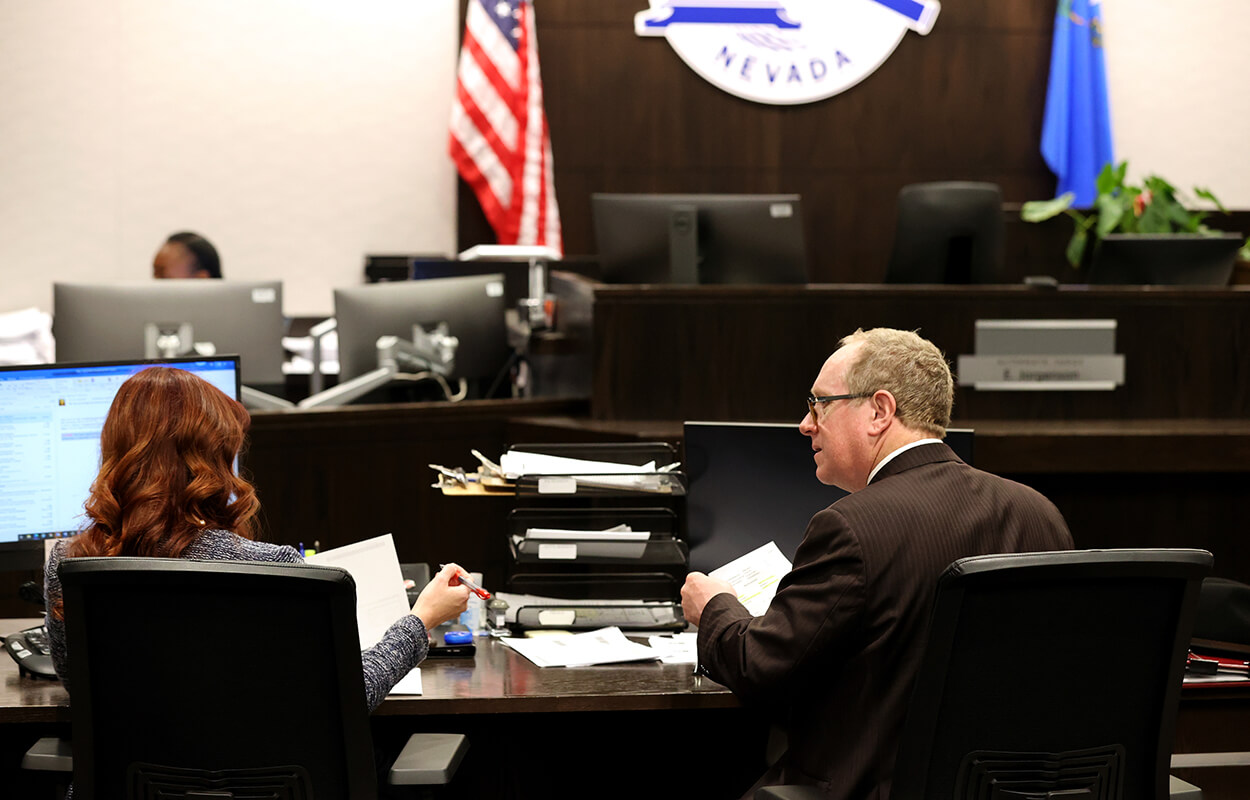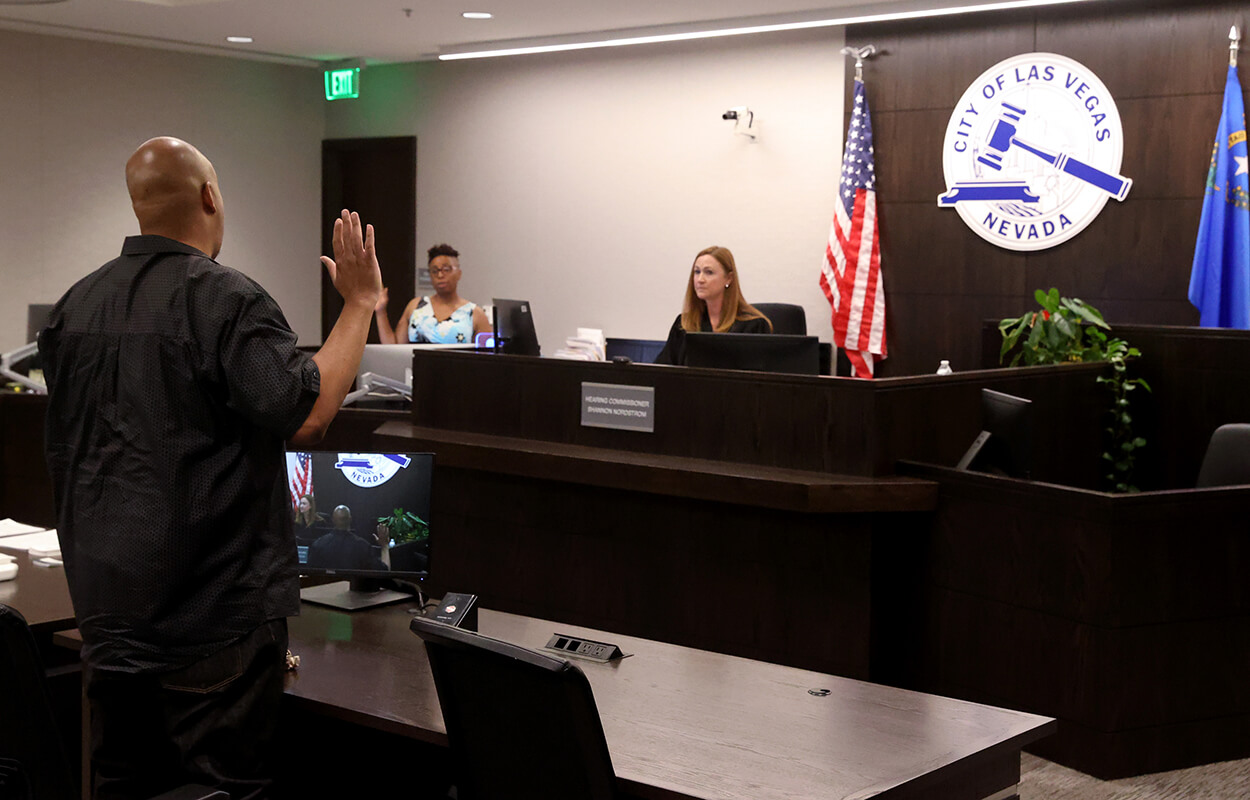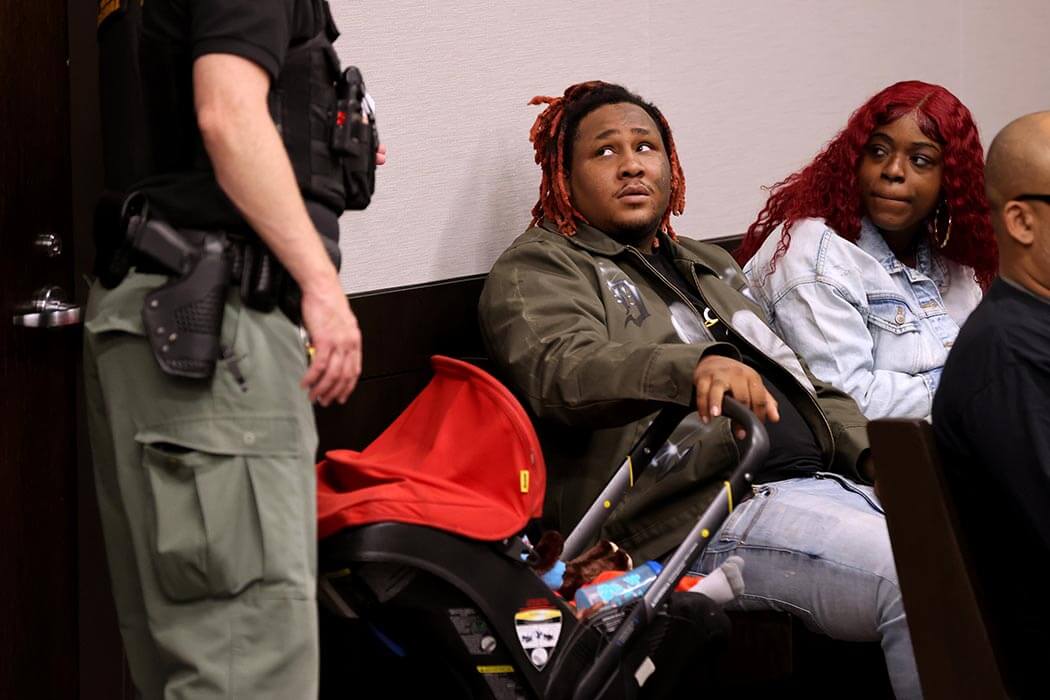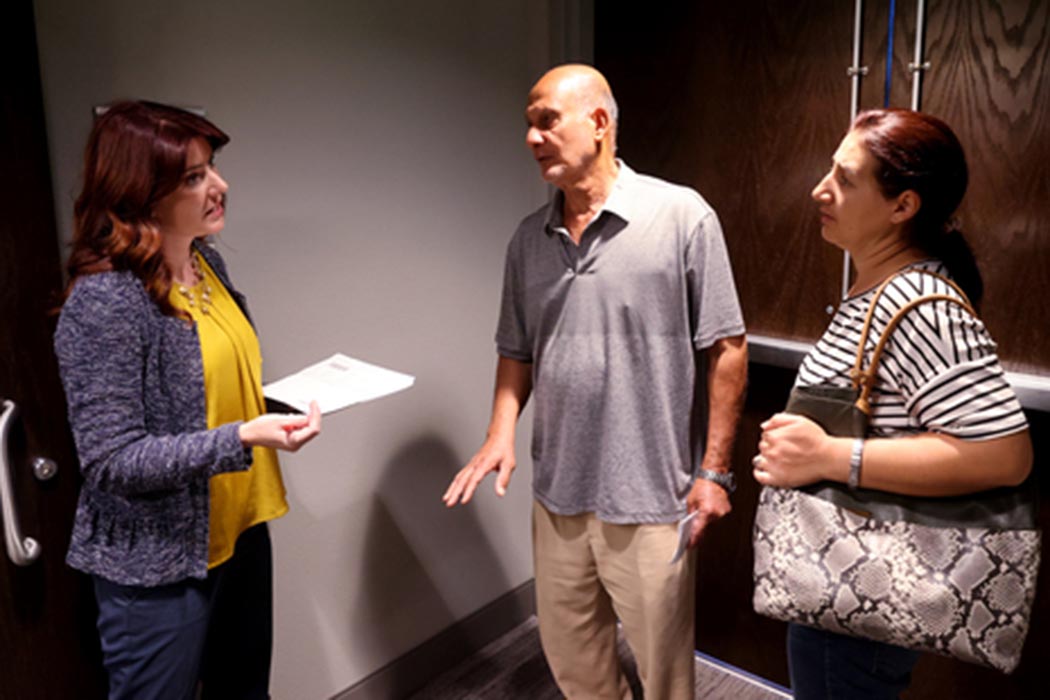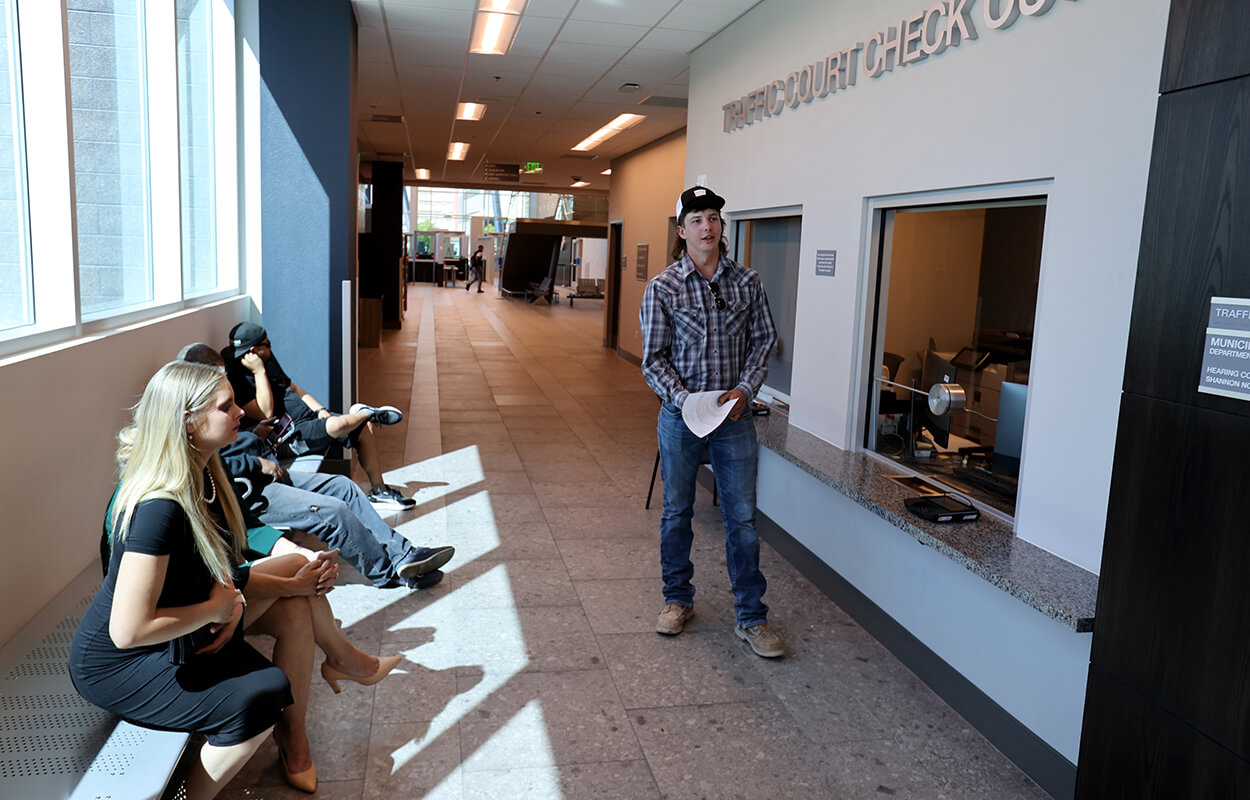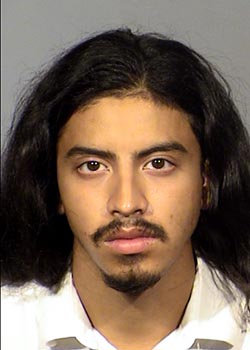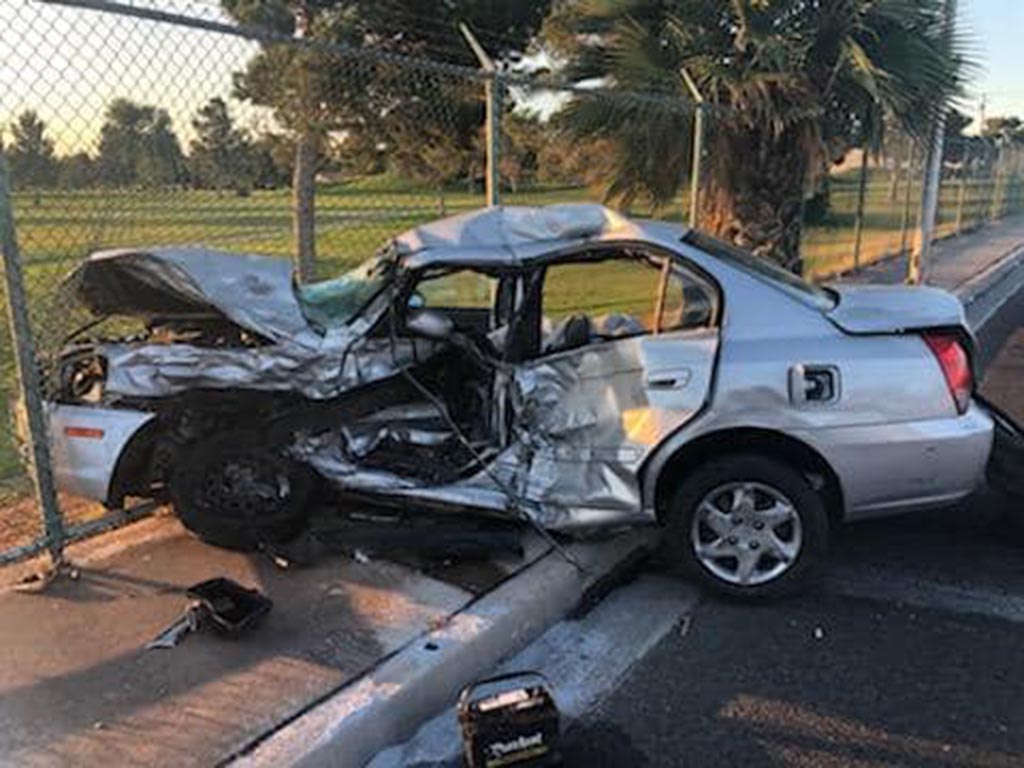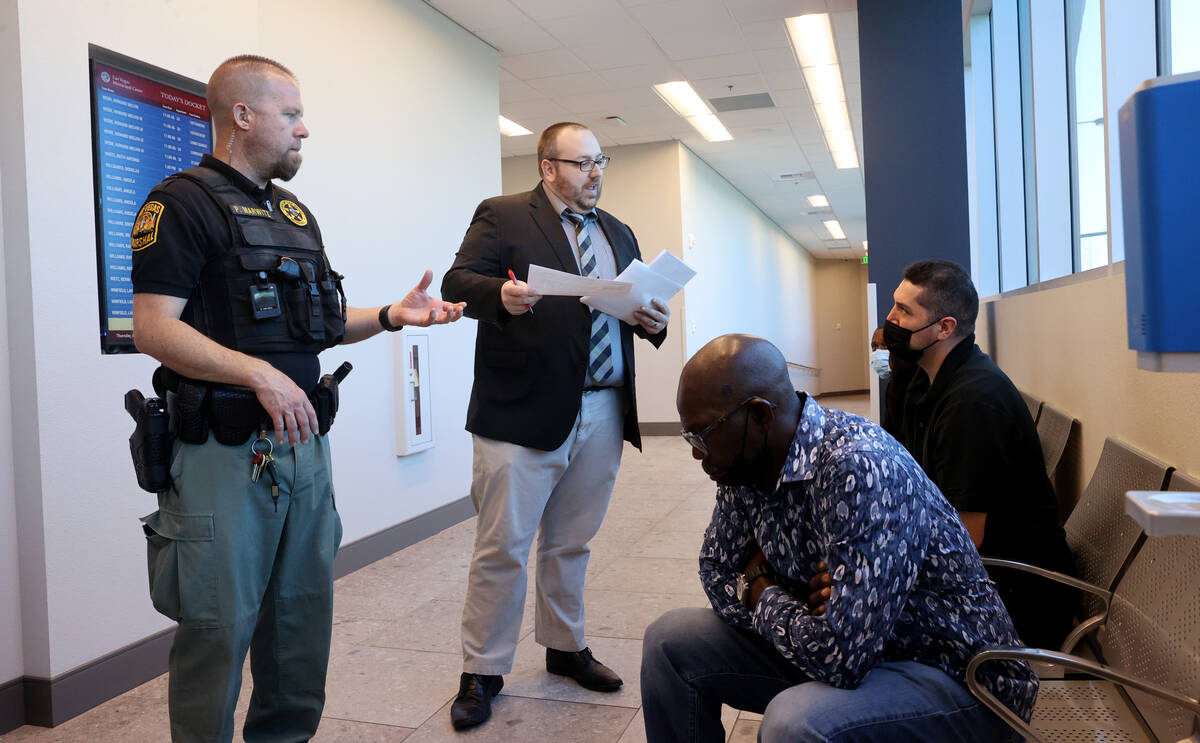
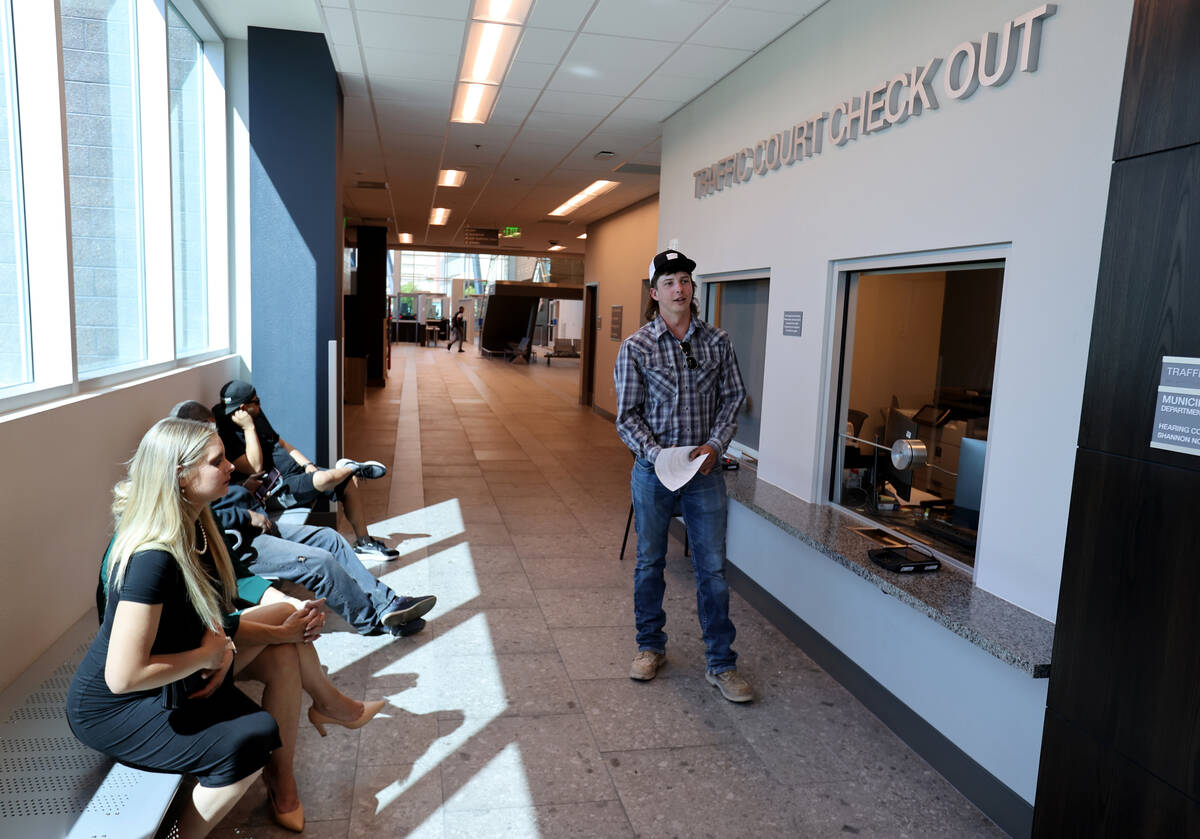


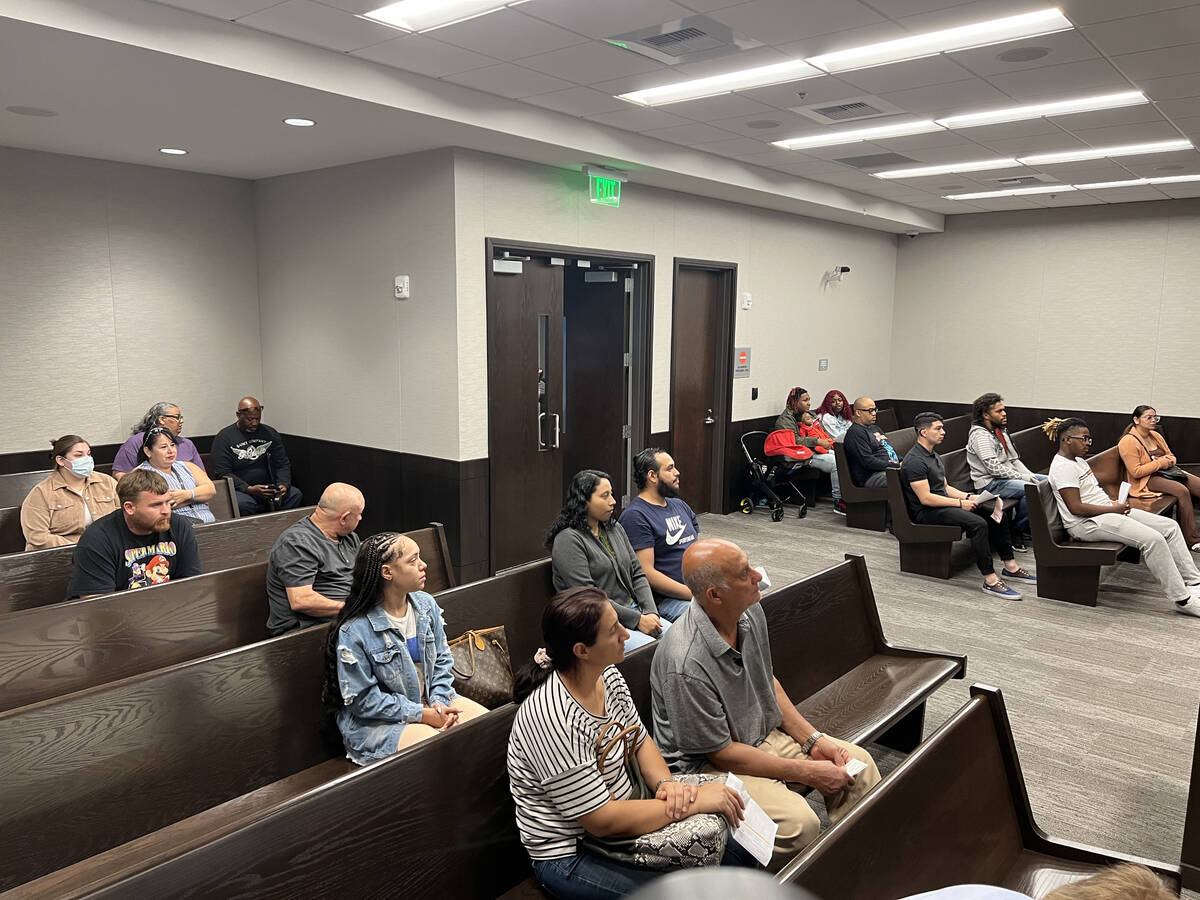
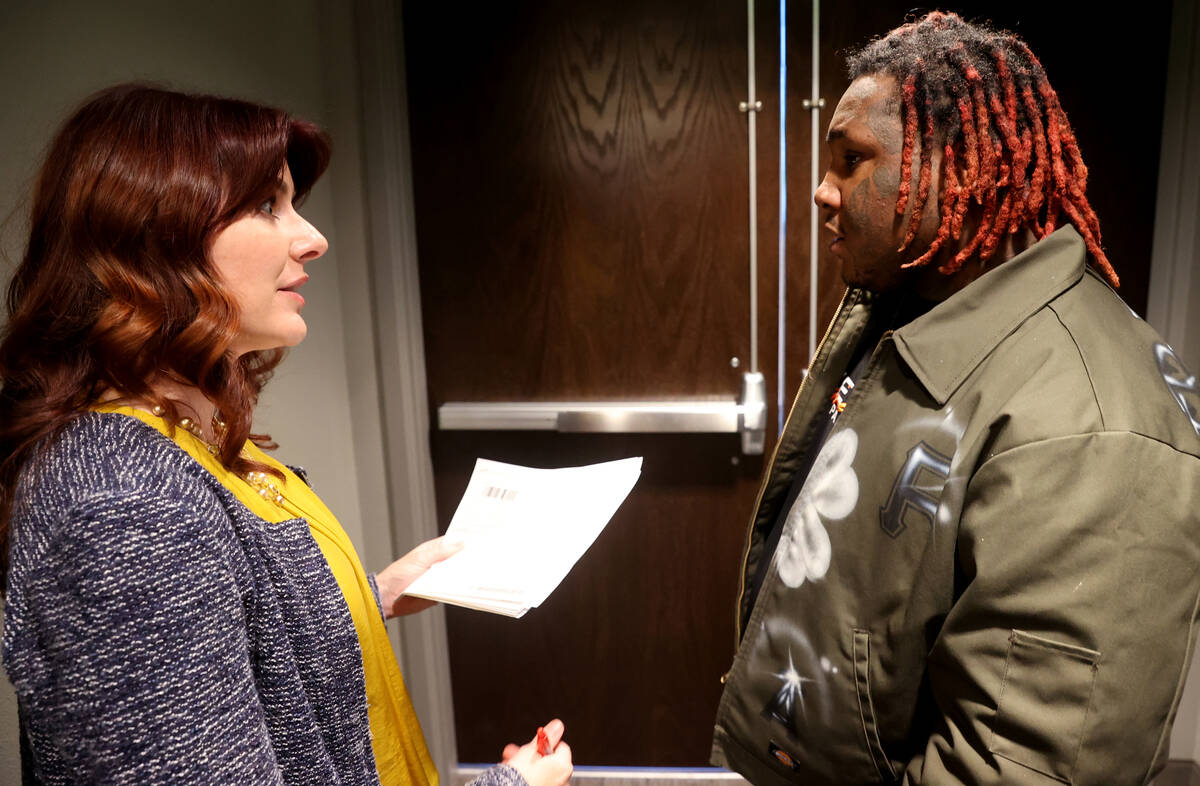
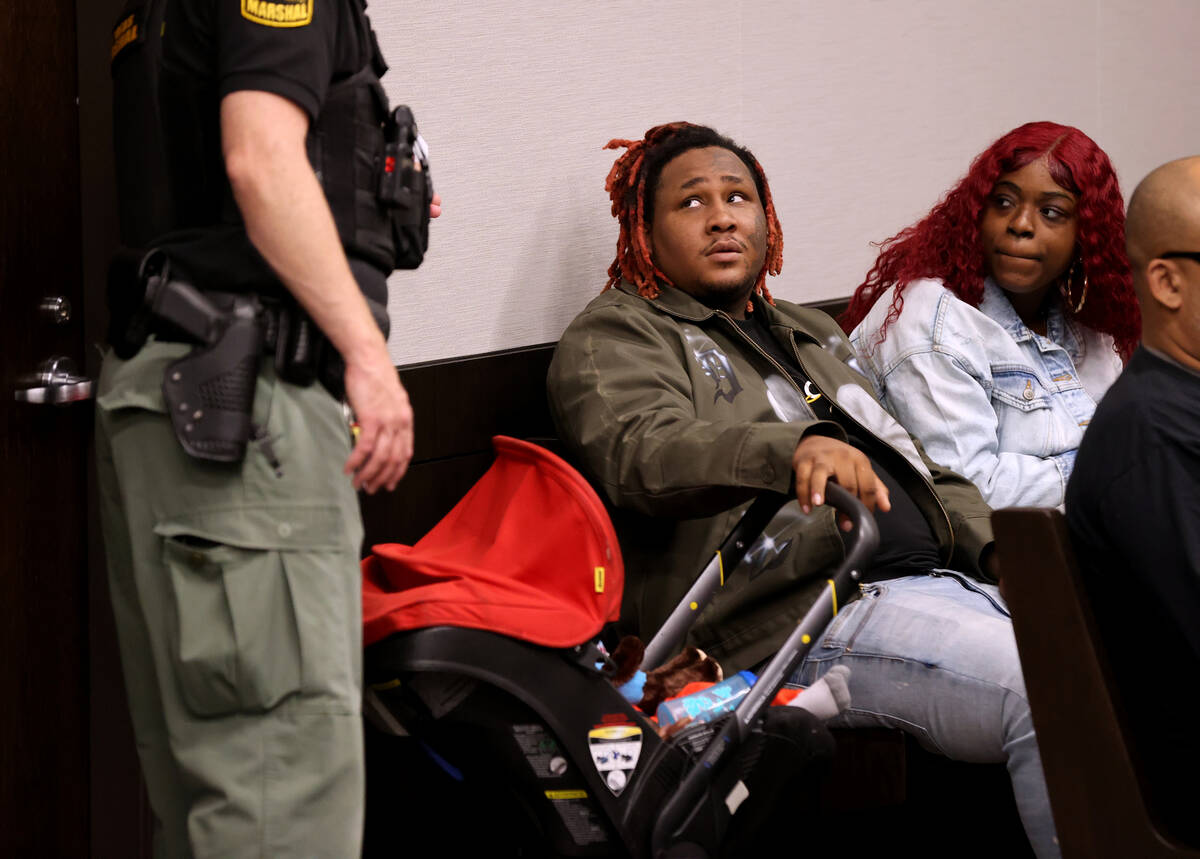
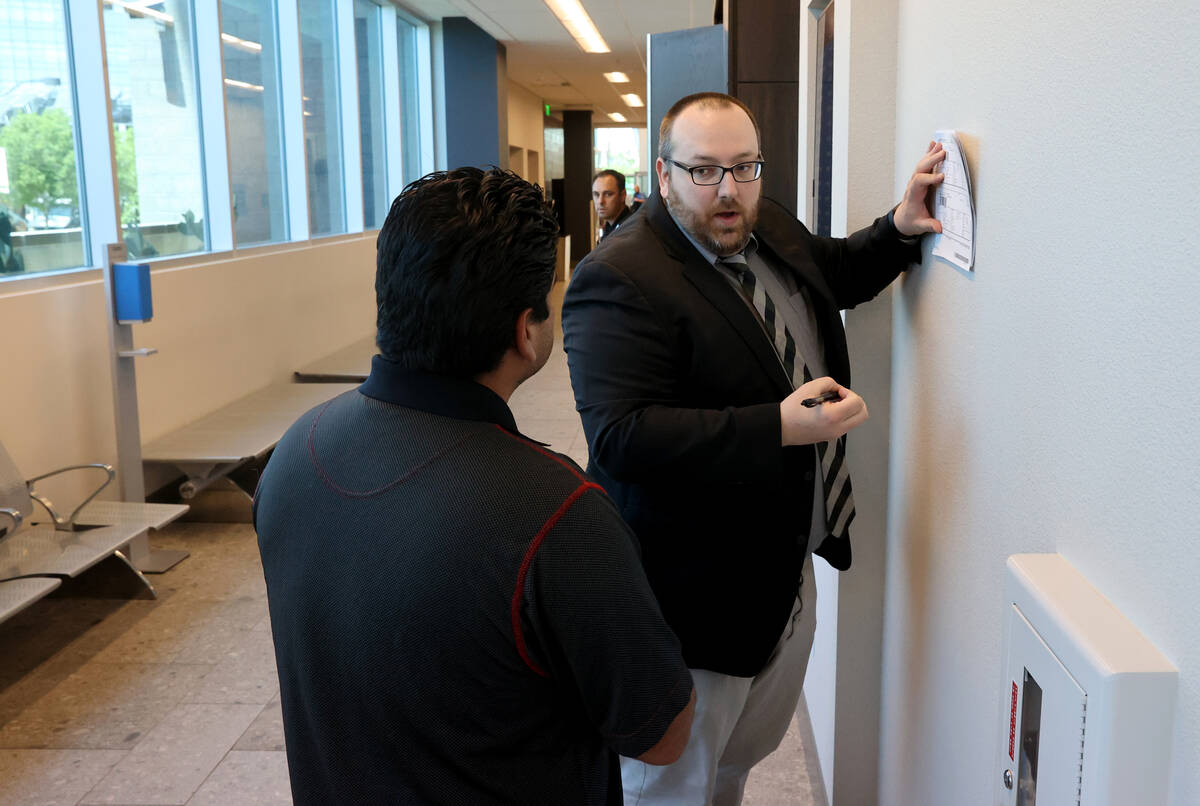
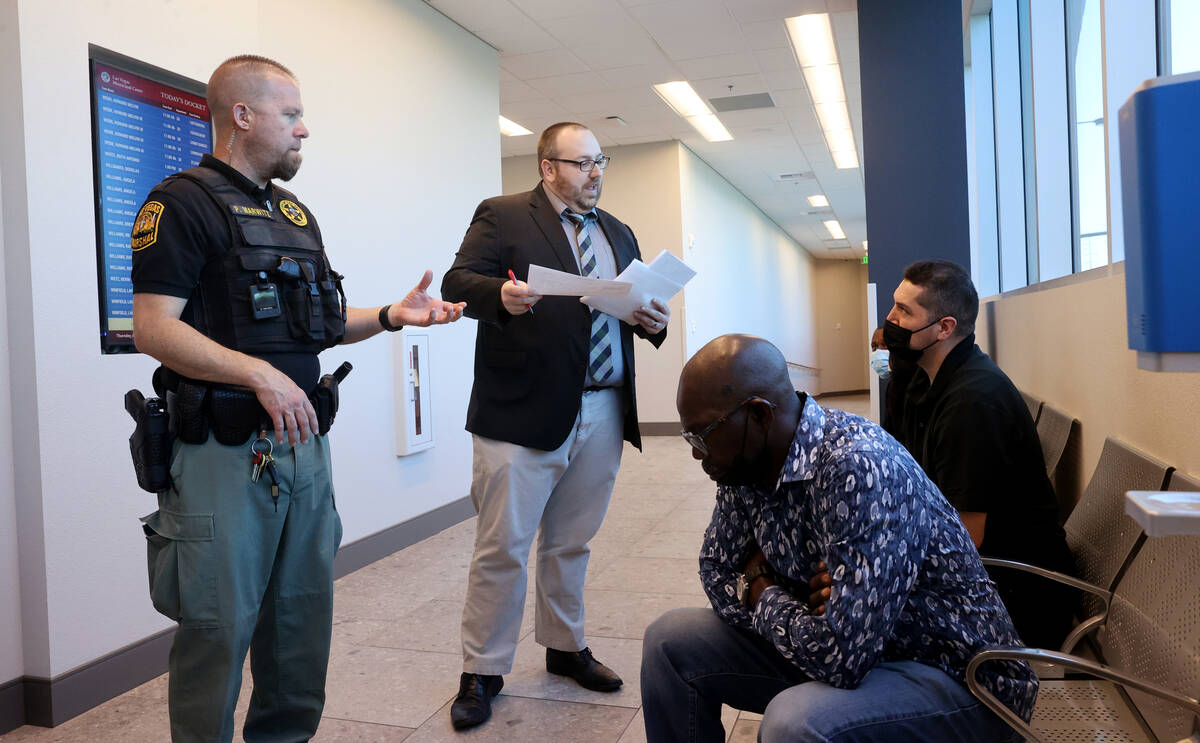

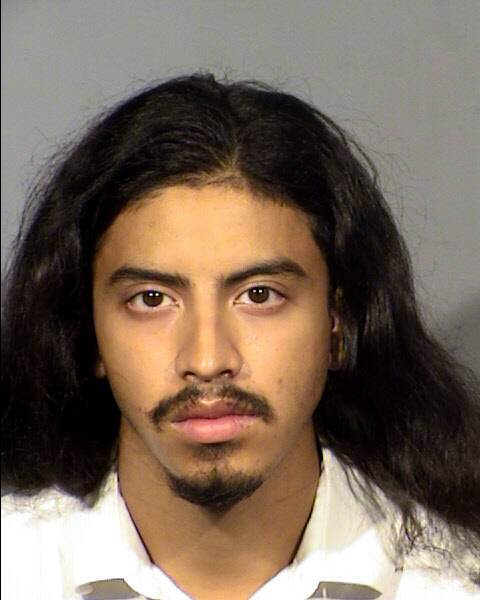
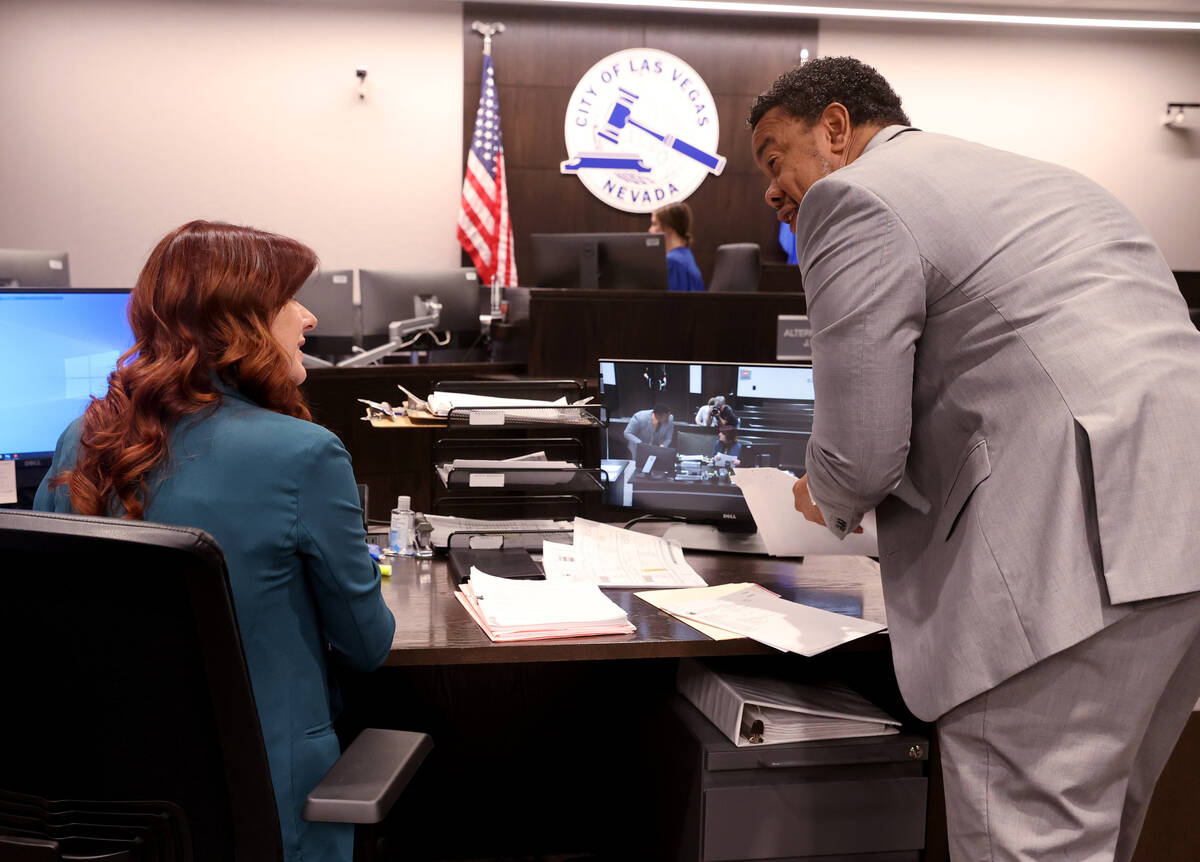
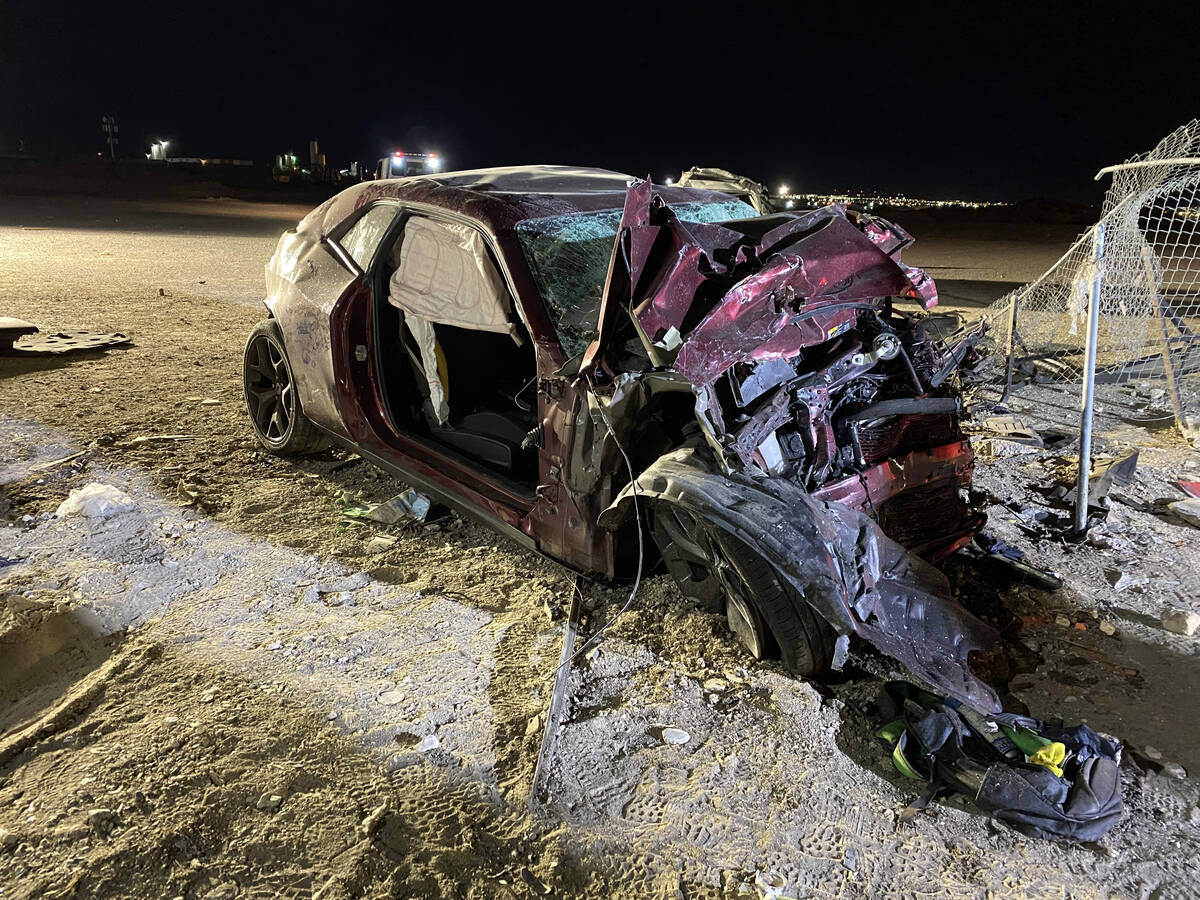
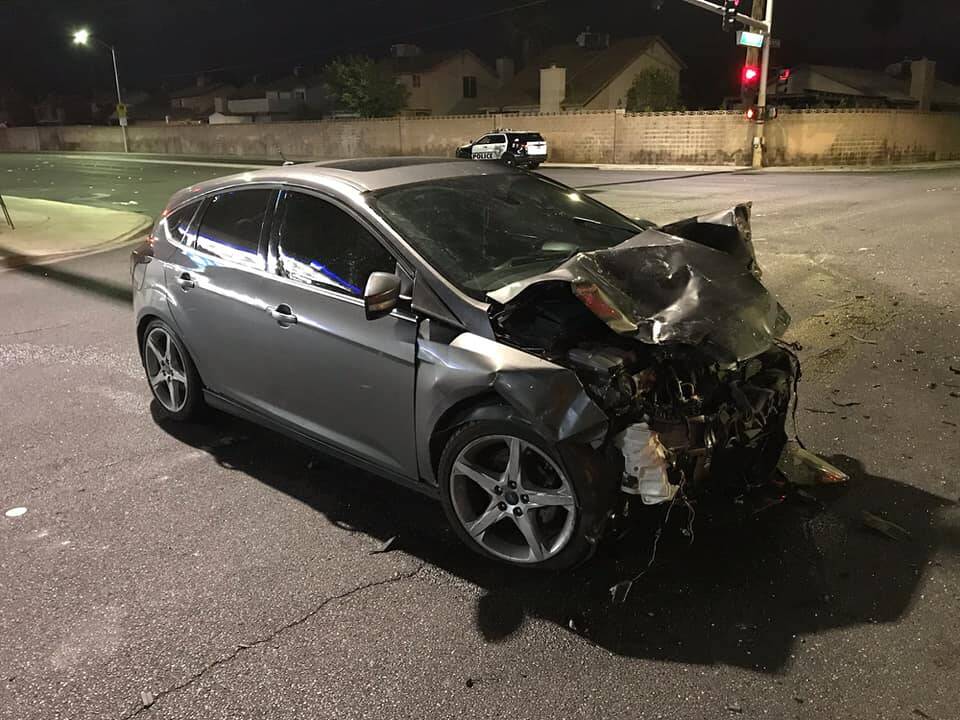
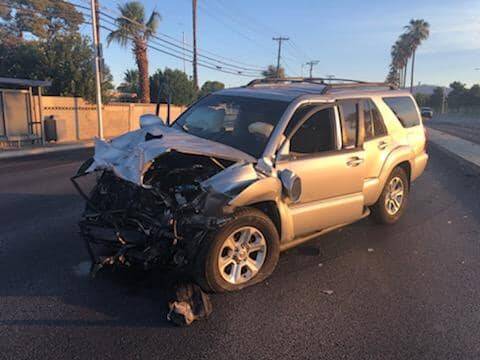

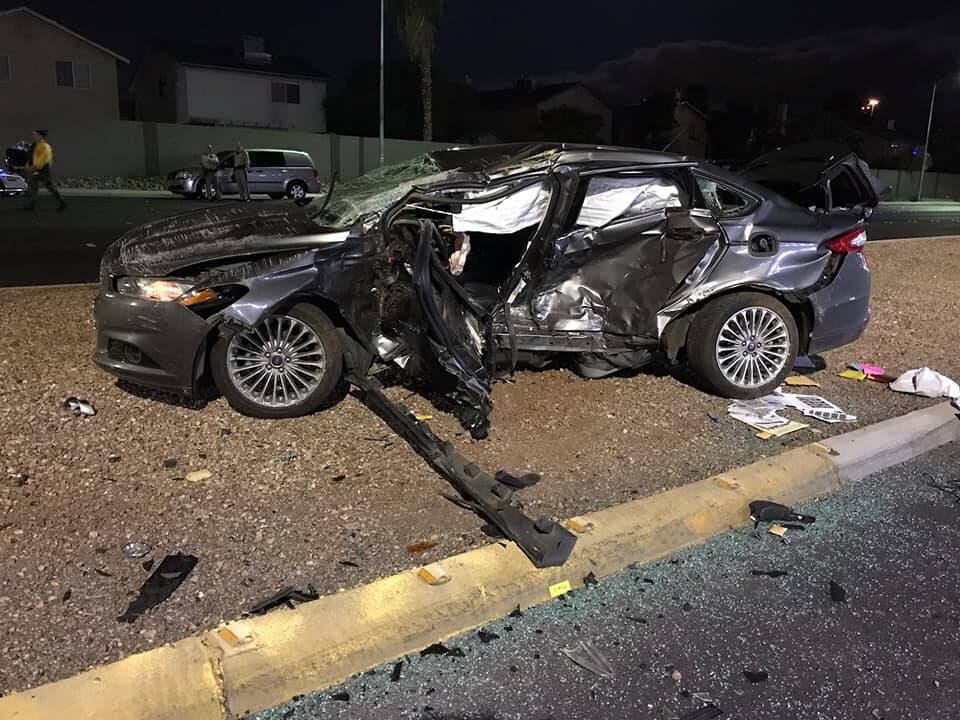
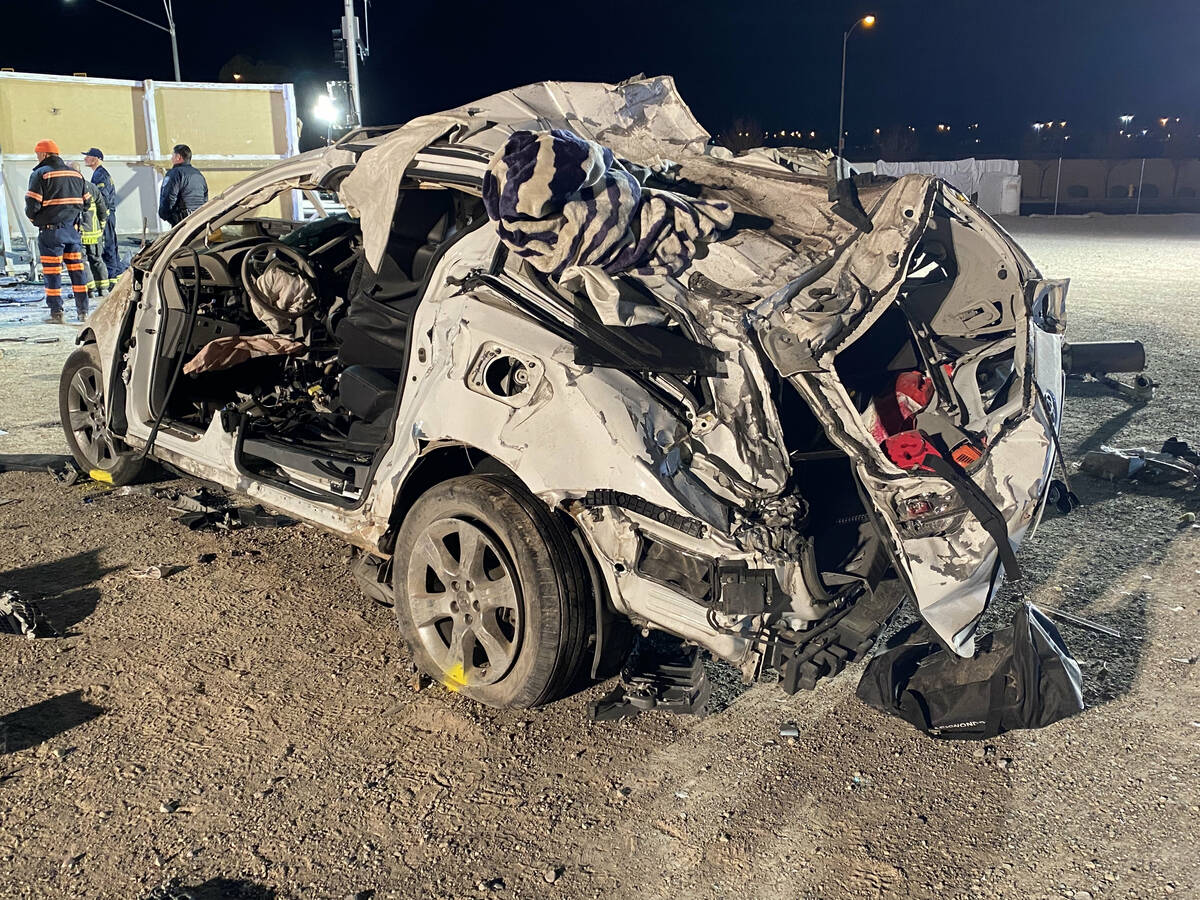

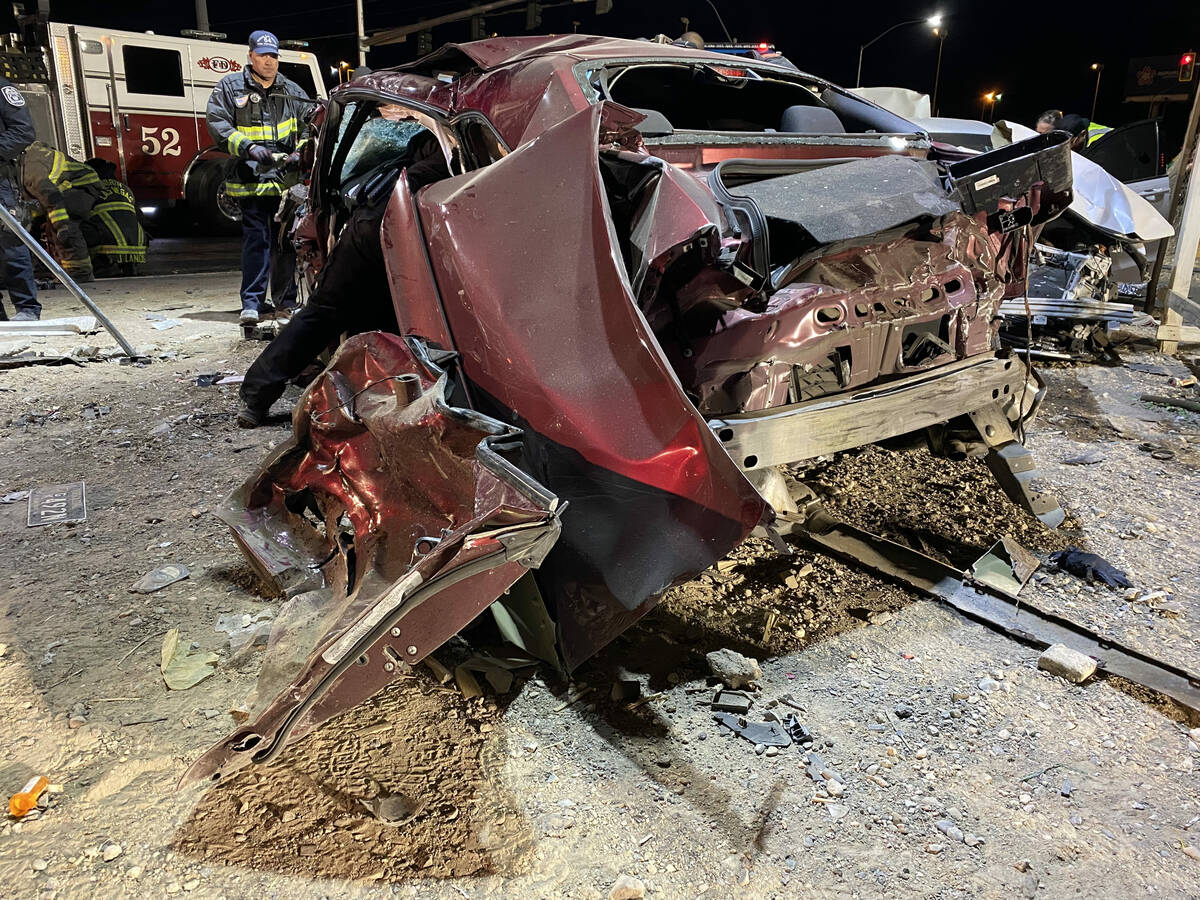
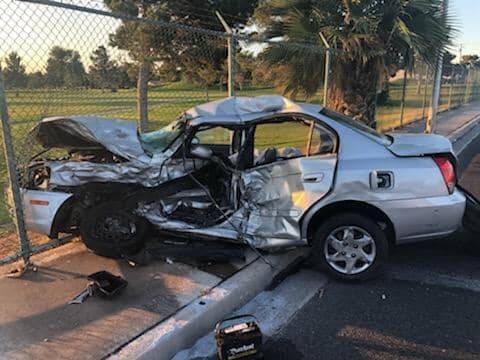
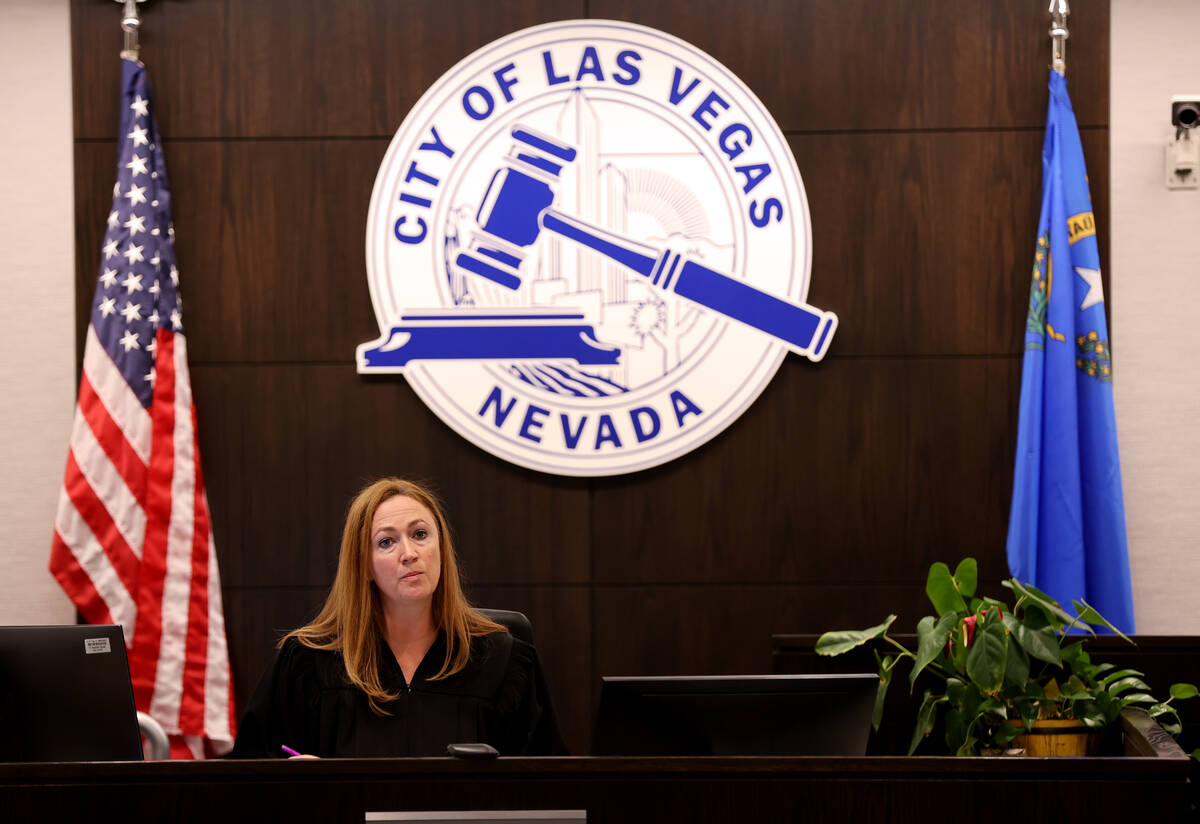
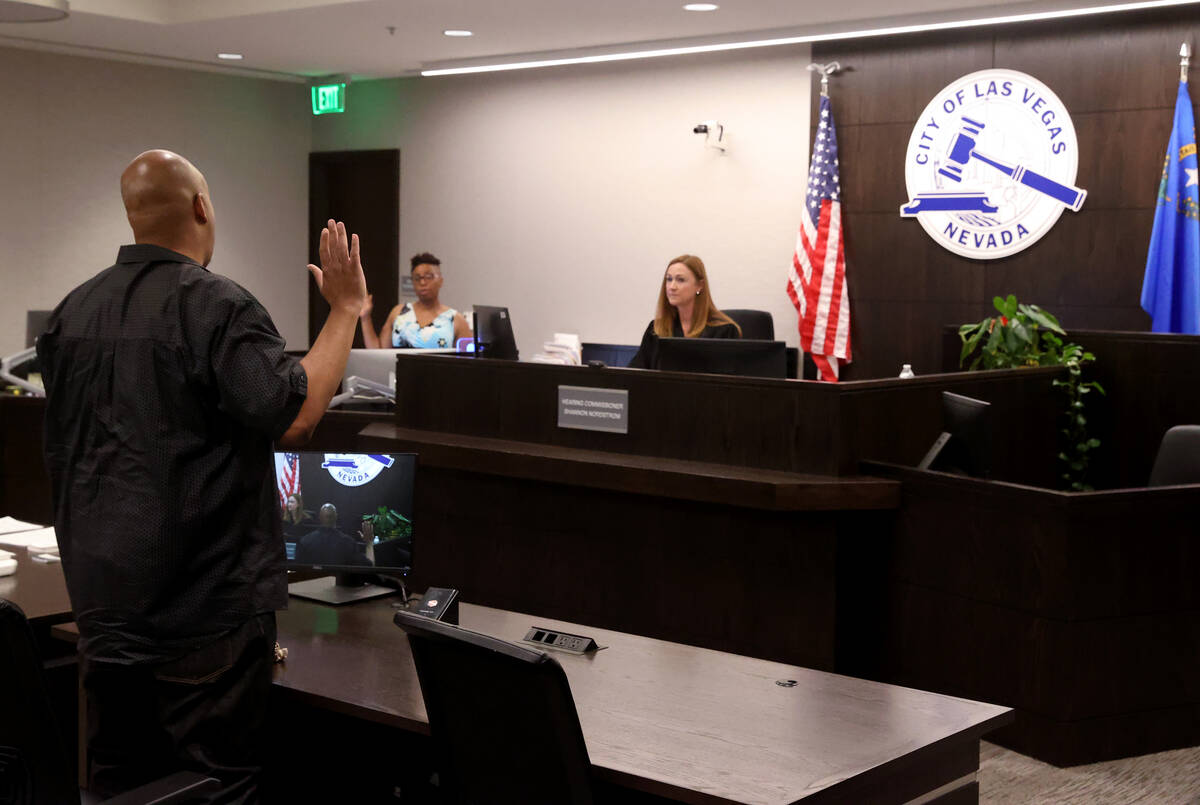
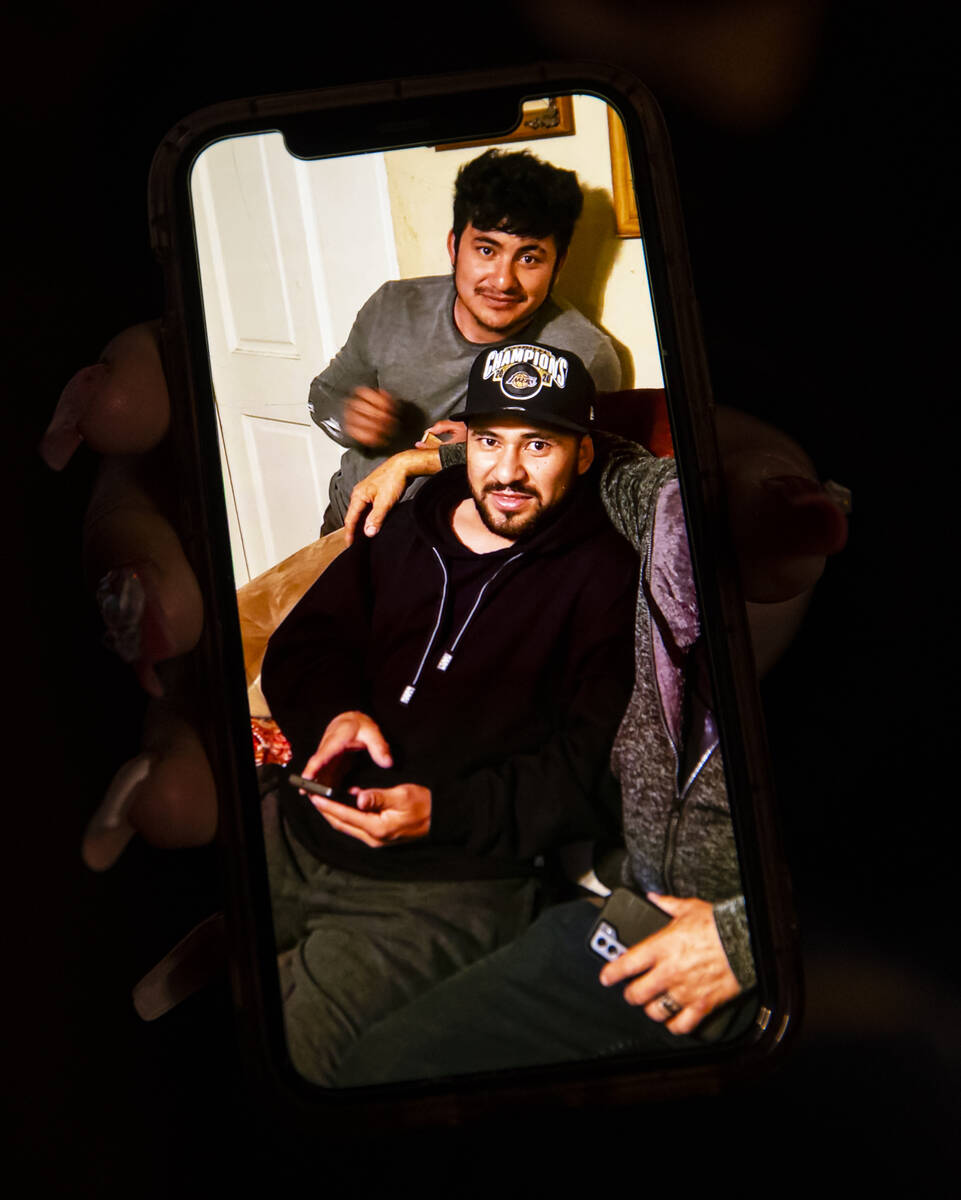
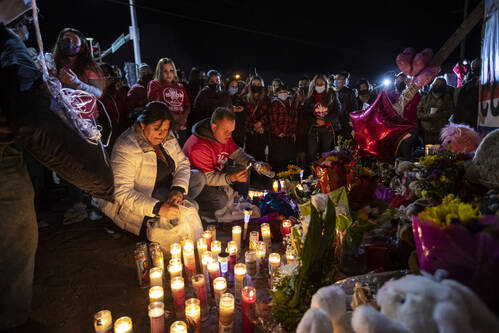

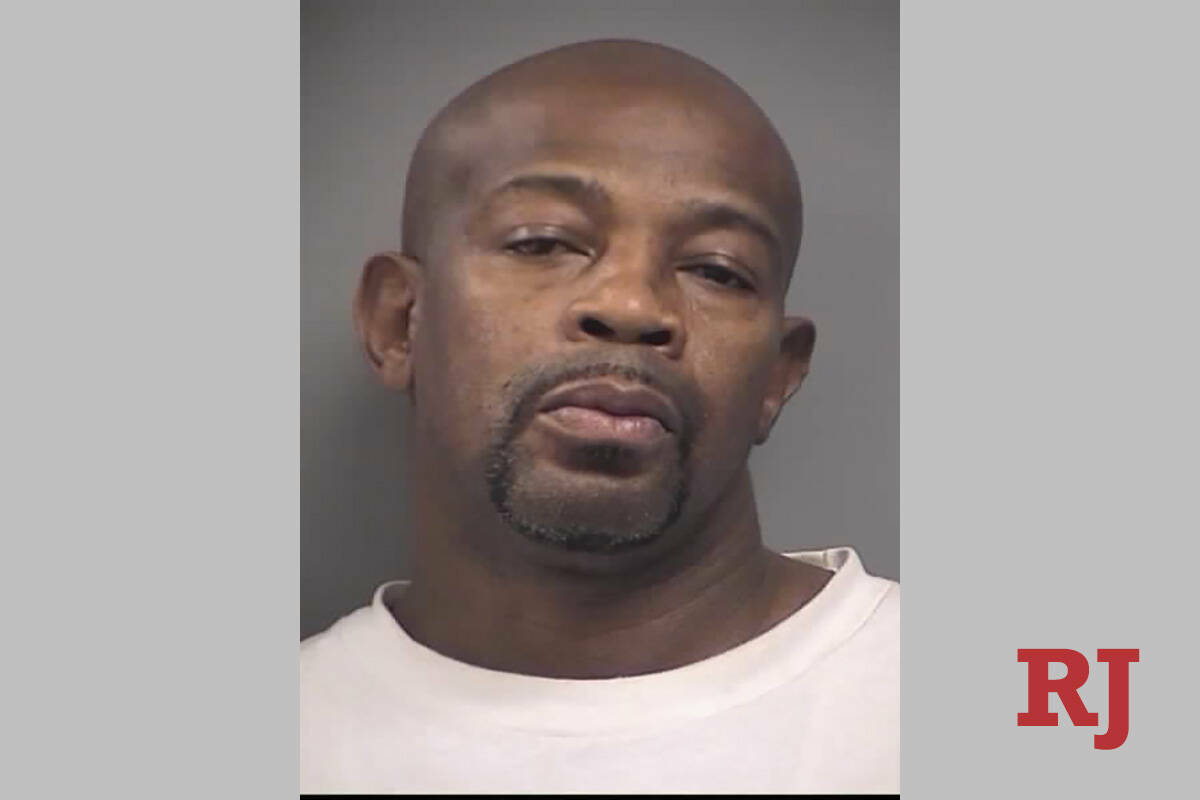
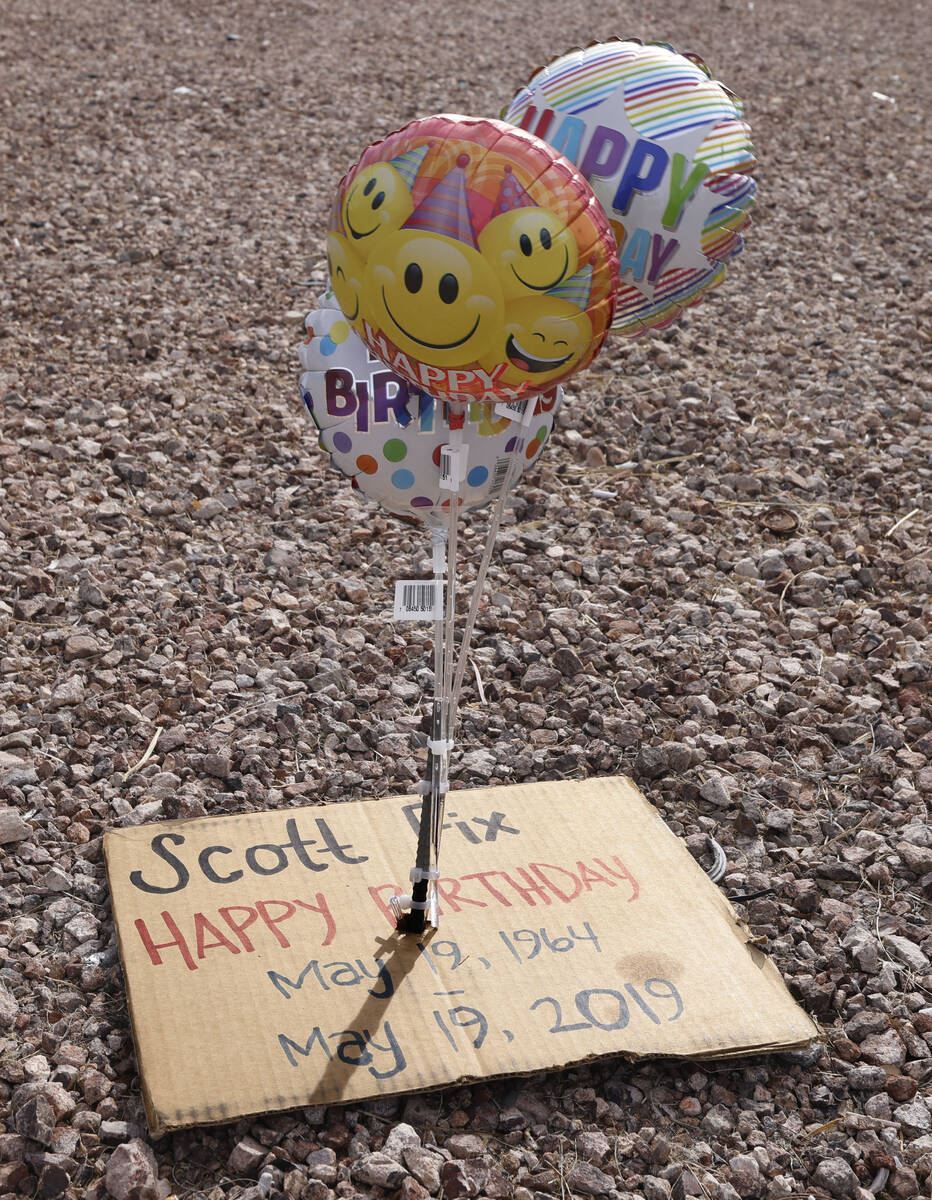
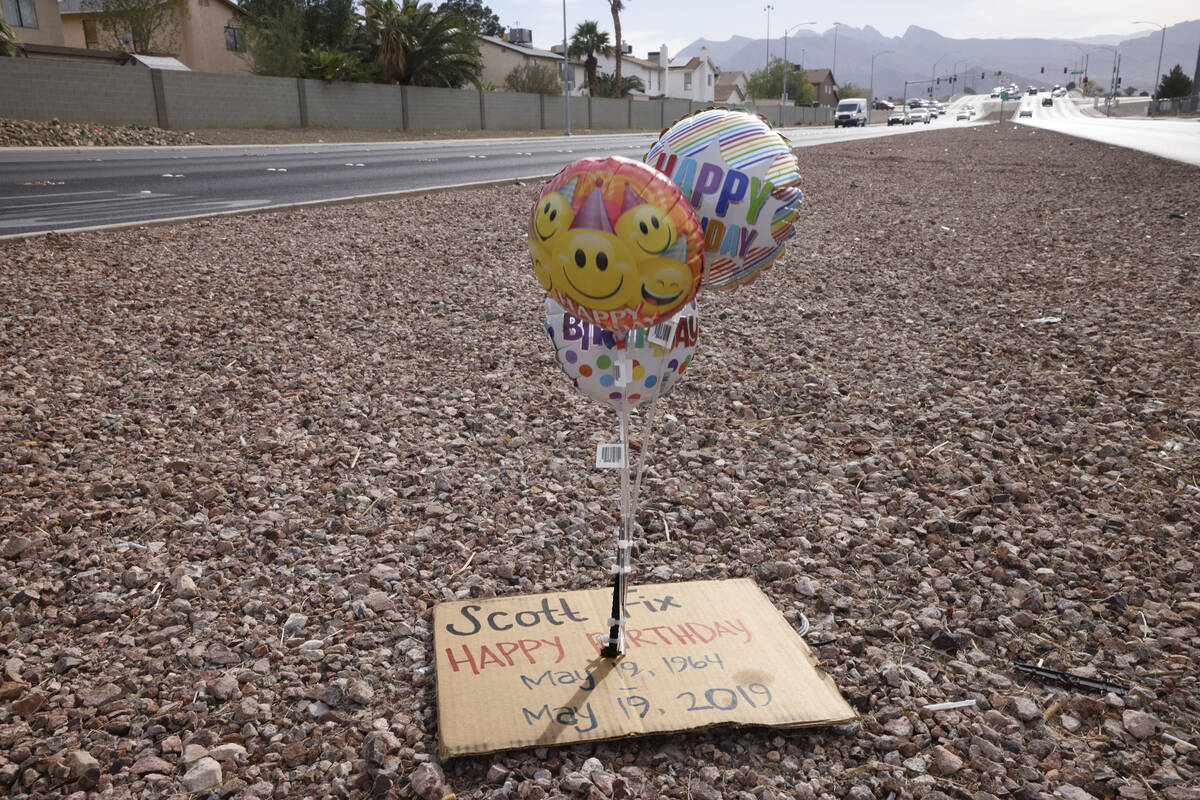

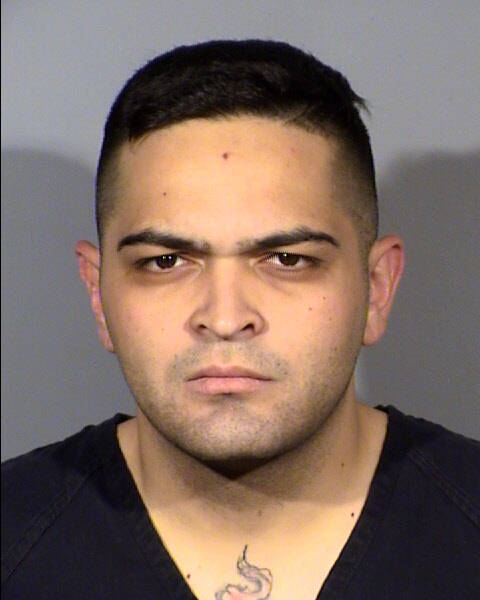

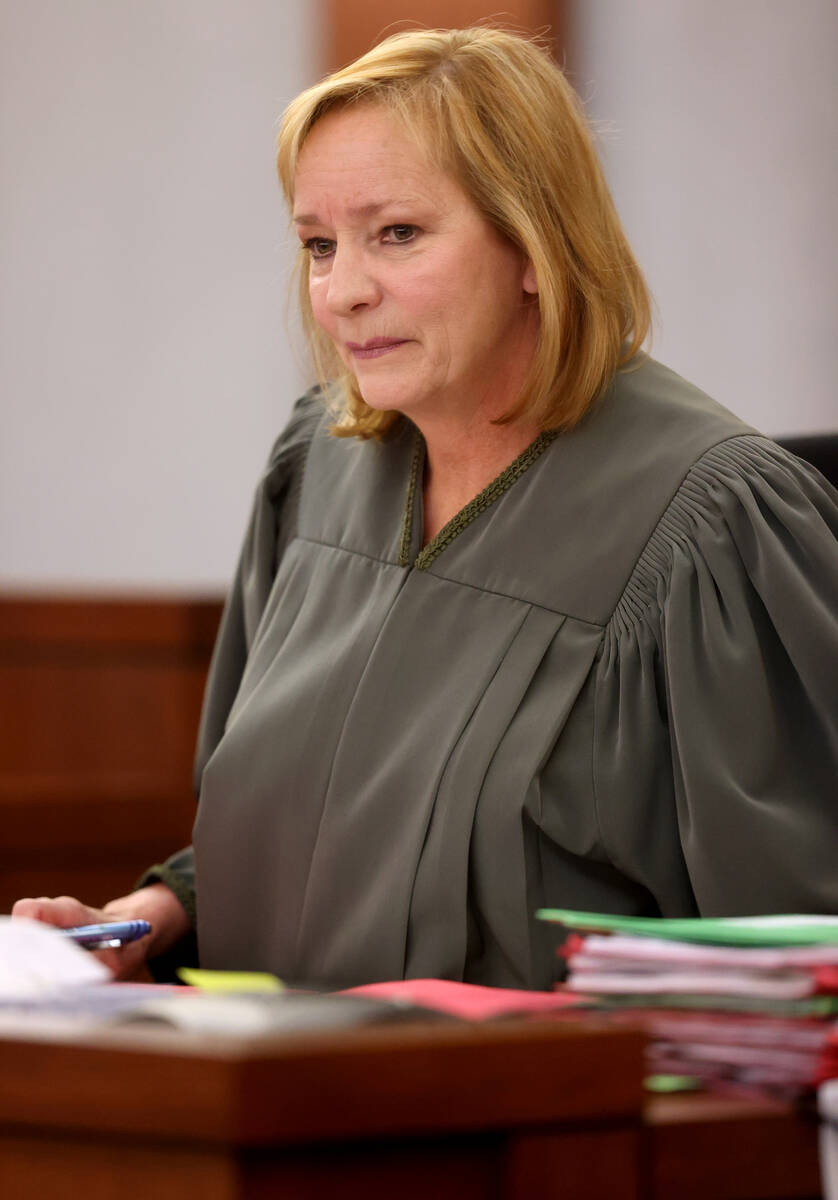
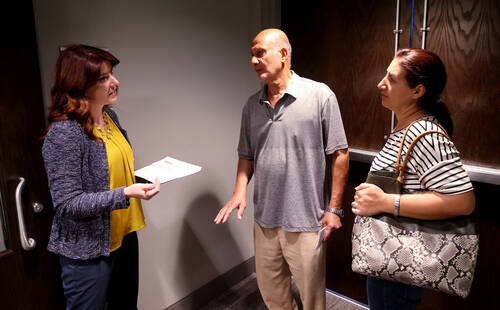

Scott Fix was celebrating his 55th birthday, headed home from a casino with his brother.
Erlinda Zacarias’ four children, two stepsons and brother were en route to their family’s usual Saturday meal.
Latoya Lampkin was only about a mile from her aunt’s house.
None made it to their destination.
They all died in high-velocity crashes, struck by drivers whose previous speeding tickets were reduced to parking violations, records show, a practice that safety experts say prioritizes court efficiency over accountability.
Every month, thousands of Southern Nevada traffic tickets — even those for the most serious offenses — are negotiated down to clear overburdened dockets, a Review-Journal investigation found.
City courts reduced more than 200,000 tickets to parking violations between 2017 and 2021. That’s almost two-thirds of all moving violations filed in Las Vegas, North Las Vegas and Henderson, records show.
And the true number is undoubtedly higher.

The region’s busiest traffic court, which handled nearly 780,000 moving violations issued in unincorporated parts of Clark County, refused to provide data on reductions during the same period. Las Vegas Justice Court administrator Jessica Gurley wrote in an email that her staff did not have the resources or the “obligation” to compile the information.
“People drive like there’s no consequence because there’s not,” UNLV Traffic Safety Coalition coordinator Erin Breen said. “That just is totally unacceptable, and the result of that is people’s lives are being lost on our streets.”
District Attorney Steve Wolfson said he was not surprised by the Review-Journal’s findings. He added that the Justice Court, which uses settlement guidelines published by his office, probably reduced tickets at a frequency similar to the cities.
 Kevin McMahill
Kevin McMahill
“As an attorney who has practiced criminal law in this community for over 40 years, I can tell you not much has changed with respect to the resolution of traffic matters,” Wolfson said.
The long-standing process has hindered authorities’ efforts to track bad drivers: Reduced tickets are not included on a person’s state DMV driving record, so they are concealed from police and auto insurance companies.
Nevada also does not keep a central database of traffic ticket information, putting it out of step with federal recommendations and neighboring states, such as Utah and Idaho, that pool court data.
Sheriff-elect Kevin McMahill, who takes office in January, said officials must “reset” the current culture.
“It causes a lot of people discomfort, but you’ll never have as much discomfort as a family who has lost a family member due to a traffic fatality,” he said.
More than 230 people died on county roads in 2021, the worst year in over a decade. This year is on track to be even deadlier, with an 18 percent rise in fatalities through June.
No record, no points, no school
Aside from fines, tickets often carry little punishment once they are downgraded to parking.
They don’t add demerit points to a driver’s license or cause insurance hikes. Drivers aren’t always assigned to attend traffic safety school, and those who are can sometimes pay an extra fee to bypass classes.
Nevada rarely suspends licenses for repeatedly breaking the law, compared with its neighbors. The state issued fewer than 800 points-related license suspensions between 2017 and 2021, records show. That’s about three suspensions for every 10,000 licenses.
California and Idaho reported suspending licenses at rates more than 10 times greater. Utah suspended them about 24 times more often.
“It is discouraging for us to put in the work on the front end and don’t see it on the back end,” Nevada Police Union President Matthew Kaplan said. “The points for a traffic offense is the biggest deterrent and what people fear the most.”
Several local courts have policies against giving deals to drivers who are frequently cited. But the state’s disjointed legal system allows motorists to rack up tickets across neighboring jurisdictions and be treated as first-time defendants in each.
Records show some drivers are cut break after break, with fatal results.
Gary Dean Robinson, 59, had been ticketed at least five times for speeding since August 2020 — three of those were reduced to parking, a Review-Journal investigation revealed in February. This January, he drove his Dodge Challenger at 103 mph through a red light in North Las Vegas and collided with a white minivan, police said.
The crash killed seven family members riding in the minivan, as well as Robinson and his passenger, Tanaga Miller. Authorities called it Nevada’s deadliest wreck in at least 30 years.
Erlinda Zacarias, who has been in Mexico after losing her children in the crash, wrote in a Facebook message she was shocked that Robinson’s tickets were reduced.
“How is it possible that (authorities) never did anything?” she wrote in Spanish. “What I would give for there to be a change so that people like him, who cause so much harm, could be stopped.”
Criminal justice records obtained by the Review-Journal show Robinson was a felon with arrests dating to the early 1980s, including a long list of traffic offenses. His autopsy also showed high levels of cocaine and PCP in his system when the crash occurred.
“One weak link, I think, brings down the whole system,” said County Commissioner Michael Naft, who led the creation of the county’s Office of Traffic Safety. “We can ramp up all the enforcement in the world, but if you don’t also have that prosecution happening through the courts, then that devalues what we’re doing on the enforcement side.”
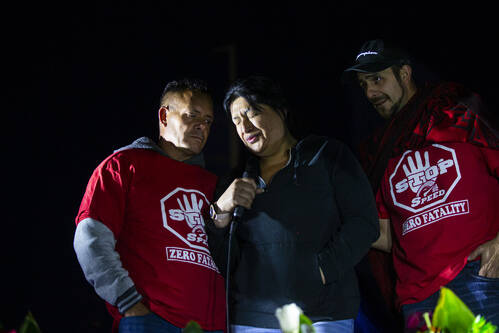
Speeding charges rarely stick
Speeders such as Robinson cause nearly one-third of the state’s fatal crashes, authorities say.
And in Las Vegas, such charges rarely stick.
More than 95,000 speeding tickets were filed in Las Vegas Municipal Court during the past five years. Over 80 percent were reduced to parking violations, records show. Deals were given to more than 400 people cited for driving more than 30 mph over, as well as about 80 people accused of going more than 40 mph over. Most were not required to attend traffic safety school.
City officials declined to participate in an interview or respond to detailed written questions about the ticket reduction process.
“Each case is subject to judicial and prosecutorial discretion,” city spokesman Jace Radke wrote in a statement.
The court also reduced about 13,000 tickets for running red lights and stop signs, records show. An additional 300 tickets for reckless driving, one of Nevada’s most serious traffic offenses, became parking violations.
The lenient prosecution is at odds with Nevada’s heavy investments in policing roadways.
This year, the Metropolitan Police Department alone allocated $28.5 million of its budget to its traffic bureau. The state has also spent millions of federal grant dollars on related efforts in recent years.
Those efforts to save lives are undermined when so many tickets are reduced, said Steve Grammas, president of the Las Vegas Police Protective Association.
“Is that really a deterrence?” he asked. “Our folks go out there, they do a very good job enforcing the laws. And where it goes from there, it’s kind of out of our control.”
Three tickets reduced, then fatal crash
In the pre-dawn darkness, Jayson Michael Salzman pushed down the gas pedal of his gray Ford Focus.
It was early on a Sunday in May 2019, and the Henderson man was driving well over the roadway’s posted limit of 45 mph in the northwest valley, police said.
Officers had already ticketed Salzman for speeding three times since 2016, including once for allegedly traveling 88 mph on a local highway. Each time, the court reduced the charges to parking, only once requiring him to attend traffic school.
That was about to end.
Salzman’s car reached 77 mph as it approached the intersection of Craig Road and Rainbow Boulevard. He sped through a red light, ramming into the driver’s side of a Ford Fusion traveling south, police said.
The impact flipped the Fusion and sent it sliding 75 feet. The sedan came to a stop on its wheels in the road’s rocky median, its windshield caved in and driver’s door mangled. The driver, Scott Fix, died at University Medical Center. His younger brother and passenger, Ron, was hospitalized with a collapsed lung, lacerated liver and broken ribs on both sides of his body.
The two brothers were visiting from California and had been celebrating the elder Fix’s 55th birthday at the nearby Santa Fe Station casino. They were only a few blocks away from their aunt’s house, where they were staying when the crash happened.
Fix’s fiancée, Gabriela Carroll, described him as a lively and devoted father of two daughters. He was a former radio DJ with a deep knowledge of classic rock and a lifelong love for the Los Angeles Dodgers. She said she believes he would still be alive if the courts had put more pressure on Salzman to drive safely.
“When you don’t have consequences, you continue repeating the same pattern,” she said.
Salzman, now 32, told police he had been drinking beer before getting behind the wheel, records show. He was later convicted of DUI resulting in death and sentenced to serve between six and 20 years in prison.
The crash is fatal proof that reducing tickets can carry a price, said professor Michael Scott, head of Arizona State University’s Center for Problem-Oriented Policing.
“If you’re going to engage in this practice, you need to be able to assure the public that you are not giving bargains to people who should not benefit from them,” he said. “Because your obligations to public safety ought to be a hell of a lot higher than your obligation to efficiency in the courtroom.”
Traffic court: Rapid-fire negotiations
At Las Vegas Municipal Court, however, efficiency is key when it comes to resolving traffic cases.
A city prosecutor conducted rapid-fire negotiations with defendants as they trickled into the courtroom on a late April morning. She immediately offered to downgrade many tickets to parking violations with reduced fines, if the drivers agreed to not fight their cases.
In hearings rarely lasting longer than two minutes, a judge approved plea deals and quashed warrants for unpaid fines. Almost 20 cases were heard in well under an hour.
Keshawn Meyi, 25, came to court with a nearly $500 speeding ticket. He was surprised to leave with a parking violation. The case would be settled once he paid the court only $150, the judge told him.
“In L.A., that’s harder,” he said as he waited to complete paperwork. “They want you to do a whole bunch of community service, and you still got to pay after.”
Despite criticism, some argue it’s crucial for traffic courts to move with lightning speed.
The day before Meyi accepted his plea, a driver accused of rolling through a stop sign took his case to trial. The case lasted a half-hour and required a police officer to testify. The man was found guilty.
Those extra minutes add up quickly, at the expense of taxpayers, Las Vegas criminal defense attorney Dean Gronemeier said. He and other attorneys regularly negotiate hundreds of cases per week.
“I’m in there for five minutes, and I cleaned up a whole day for the judge,” Gronemeier said as he exited the court after resolving more than a dozen cases. “The bottom line is we’re saviors to this system.”
Many attorneys offer a similar pitch: For a fee, drivers can resolve their tickets without making a court appearance, attending traffic school or receiving demerit points. Attorneys have negotiated down more than 40,000 moving violations filed in the city court since 2017, records show. Some represented thousands of cases.
Reducing traffic tickets could be raising the prices that all Nevada drivers pay for auto insurance, industry experts say.
On average, the stateâs drivers pay some of the most costly premiums in the U.S., about $1,300 a year as of 2019. The state also has one of the fastest-growing rates nationwide, according to the National Association of Insurance Commissioners.
Insurance companies typically charge people more if they have traffic convictions. Thatâs because theyâre more likely to cause crashes, said Doug Heller, insurance director for the Consumer Federation of America.
But if insurers canât find out who is being ticketed, then theyâll raise premiums for all customers to cover the costs usually paid by people with worse records.
The practice could also send drivers the wrong message, Heller said.
âIf we take away the penalty, do we also take away the incentive for people to drive safely?â he asked. âWeâre giving people a little bit more of a green light to be unsafe behind the wheel.â
However, itâs difficult to determine how great that impact is, UNLV insurance law professor Jeff Stempel said.
âItâs pretty well understood that moving violations are not nearly as big a deal as having an at-fault accident, particularly a serious one,â he said.
At Ticket Busters downtown, a handful of attorneys handle about 1,000 tickets each month. Lead attorney Nancy Bernstein said virtually all are pleaded down to parking, no matter the original charge. However, Bernstein said she believes most drivers learn their lesson, even if their ticket is reduced.
“People really take their tickets seriously. They get super stressed out,” she said. “And that’s a good thing.”
She added that a recent crackdown on repeat offenders has made some negotiations harder. That’s due, in part, to guidelines courts have adopted, allowing drivers to settle tickets online in almost every jurisdiction in the county. Those automated systems offer drivers predetermined resolutions based on their ticket history, and drivers without previous violations are more likely to get a reduction.
But there’s a glaring flaw, said Gary Thompson, a Henderson attorney who has handled tickets for over 20 years. None of the courts communicates with each other.
“We’re not single-municipality people,” Thompson said. “Even in my little slice of the world, I get clients that have multiple citations in different jurisdictions. They’re all treated as first-time offenders.”
The National Highway Traffic Safety Administration recommends that traffic courts supply case information to a statewide database so that they can be analyzed for trends and accessed in real time by police, prosecutors and judges.
Doing so would also improve transparency when fatal crashes occur, said Juliet Little, a board member and past president for the Association of Transportation Safety Information Professionals.
“That’s usually when you’ll get the question ‘How come this person was still driving?’ ” she said. “And somebody needs to be accountable for that.”
Driver gets break from disjointed system
Jacob Elijah Lainez probably benefited from Southern Nevada’s siloed courts.
The Las Vegas man was charged with speeding on local roads twice in February 2019. In each case, police alleged he was traveling 30 mph or more over the limit.
But the tickets were filed in two separate jurisdictions. Each was reduced to a parking violation; Lainez did not attend traffic school for either, records show.
A similar scenario played out the following year. This time, it ended in disaster.
In July 2020, police ticketed Lainez for driving 54 on a 30 mph road in east Las Vegas.
Three weeks later, witnesses spotted his Toyota 4Runner careening between vehicles on Decatur Boulevard not long after 4 a.m., police records show. The SUV hurtled down the 45 mph road somewhere between 70 and 80 mph, witnesses said, its headlights turned off in the dark. Authorities later estimated the Toyota was traveling 63 mph when it T-boned a silver Hyundai Elantra turning left from a stop sign at Carmen Boulevard.
The collision sent the sedan over the road’s median, across three lanes and lodged its front end into a chain-link fence. Its driver, Latoya Lampkin, died at the scene.
About a mile away, Lampkin’s aunt could hear the sirens of emergency vehicles from inside her home as she watched a newscast about the fatal crash. In a letter to District Judge Eric Johnson, Donna Hawkins later recalled praying for the driver, not knowing it was her own niece.
“My heart is broken and sad,” Hawkins wrote. “It’s hard for me to drive down that road without reliving that day over and over again.”
Lampkin’s mother, Patricia, died a few weeks after the crash. Her family blamed the stress of losing her daughter.
Lainez, now 25, ran away from the crash site before police arrived. He was arrested the next month on hit-and-run and reckless driving charges and eventually was sentenced to between five and 15 years in prison.
His fortune with traffic tickets, however, appeared to continue even as he faced felony charges. In December 2020, the Las Vegas Justice Court reduced his July speeding charge to parking, records show.
Prosecutors were not directly involved in the decision. Instead, court officials said the deal was reached using sentencing and settlement guidelines from the district attorney’s office.
Breen, the UNLV traffic safety expert, said the plea deal epitomized the failures of local traffic courts.
“If somebody has a very serious case pending against them, (d0) you treat them the same way that you treat the average speeding ticket?” she asked. “That’s just crazy.”
(Editor’s note: This reporter used Ticket Busters in 2018 for a speeding ticket that was pleaded down to a parking violation.)
Contact Michael Scott Davidson at sdavidson@reviewjournal.com or 702-477-3861. Follow @davidsonlvrj on Twitter.
Review-Journal staff writers Glenn Puit and Ricardo Torres-Cortez contributed to this story.
Judge: 2023 law will bring accountability to ticketed drivers
Las Vegas Review-Journal
Two changes coming in early 2023 could relieve Nevada’s overwhelmed and siloed traffic court systems.
The state plans to combine its traffic courts into a single online platform by January.
During the same month, a new law will decriminalize most minor traffic offenses, making them civil infractions. That means courts will reduce far fewer traffic tickets to parking violations, according to two top justice system officials.
Las Vegas Justice Court Chief Judge Melissa Saragosa said the state will no longer have to prove beyond a reasonable doubt that someone committed a traffic violation. Instead, they will only need to show a greater than 50 percent likelihood that the violation was committed.
Drivers who don’t respond to their civil tickets within 90 days will automatically be found to have committed the traffic offense. Prosecutors won’t be required to participate in the civil process, meaning drivers’ choices to resolve tickets will be limited, Saragosa said.
 Judge Melissa Saragosa
Judge Melissa Saragosa
“I don’t believe there will be anyone there to plead it down (to parking),” she said.
Such a shift would be a massive change in Southern Nevada.
A Review-Journal investigation found local city courts reduced more than 200,000 traffic tickets to parking violations between 2017 and 2021, keeping them off motorists’ state driving records.
The new law, Assembly Bill 116, will not change Nevada’s existing demerit point system for drivers, Department of Motor Vehicles spokesman Kevin Malone said.
Tickets are assigned varying amounts of demerit points based on their seriousness, and drivers who accumulate too many points can temporarily lose their license. However, tickets that are amended to parking are worth no demerit points.
That’s why amending fewer tickets will better hold drivers accountable, Clark County District Attorney Steve Wolfson said.
“I am hopeful those who drive dangerously are more often found to have committed the traffic infraction, to have demerits reported to the DMV, to have their licenses suspended, and to pay higher insurance premiums,” he said. “The result will be safer roads on which we all drive.”
New traffic citation platform
Nevada’s Administrative Office of the Courts is also working to create a statewide platform for drivers to resolve civil traffic citations online, said director and state court administrator Katherine Stocks.
Courts across the state currently use more than a dozen case-management systems.
The platform will be designed by Global Justice Solutions, a Virginia technology company. Contract negotiations are ongoing, but Stocks said the new platform will be paid for using American Rescue Plan pandemic relief funds.
The new platform will have one standard set of fines for tickets across the state, Stocks said.
Some officials say they believe the change will make it easier to track repeat offenders.
“Currently the different courts have no way of knowing if a driver has citations in any other court,” Nevada Judges of Limited Jurisdiction President Ann Zimmerman told state lawmakers in April. “A statewide system would give access to every court to see what citations every other court has.”
Contact Michael Scott Davidson at sdavidson@reviewjournal.com or 702-477-3861.
Tracking a driving history: How does Nevada compare to other states?
Las Vegas Review-Journal
Nevada courts operate in information silos, making it difficult for police and judges to know a person’s complete driving history. This means some people are treated as first-time defendants by traffic courts even when they have received infractions in neighboring cities.
The state plans to launch a single case-management system for low-level tickets in January. Doing so would bring Nevada up to speed with several of its neighbors, who already share information between courts.
Here’s how it works in those states:
Utah
Information on traffic cases has been stored in a central online repository since the late 2000s. It is accessible to both government officials and members of the public.
“It helps prosecutors know what they’re dealing with when a case lands on their desk,” said Keri Sargent, a state courts official.
Despite having a similar population size to Nevada, Utah more commonly suspends the licenses of drivers who are repeatedly ticketed. The state issued more than 3,000 demerit points-related license suspensions last year, while Nevada issued fewer than 100.
Idaho
Has stored traffic case information in a central online repository since 2008. Like Utah’s, it is useable by the government and the public.
The state issued more than 1,100 points-related license suspensions last year, despite its population being far smaller than Nevada.
California
Does not have a statewide case-management system or a central online repository.
However, the state’s 58 counties each have a single trial court that handles all traffic tickets for that county, instead of each city having its own court.
California has a population roughly 12 times larger than Nevada, but last year it issued about 150 times more points-related license suspensions.
Arizona
Thirteen of the state’s 15 counties use the same case-management system and submit traffic court records to a central online repository available to officials and the public.
The state’s two largest counties, Maricopa and Pima, do not participate.
Arizona did not provide data on how many points-related license suspensions it issued last year.
Oregon
The statewide case-management system does not include all local courts, so not every traffic case is stored there.
The state’s most populated county files its traffic cases into the statewide system. About 820,000 people live in Multnomah County.
Oregon does not use a demerit points system to suspend licenses.
Contact Michael Scott Davidson at sdavidson@reviewjournal.com or 702-477-3861.





